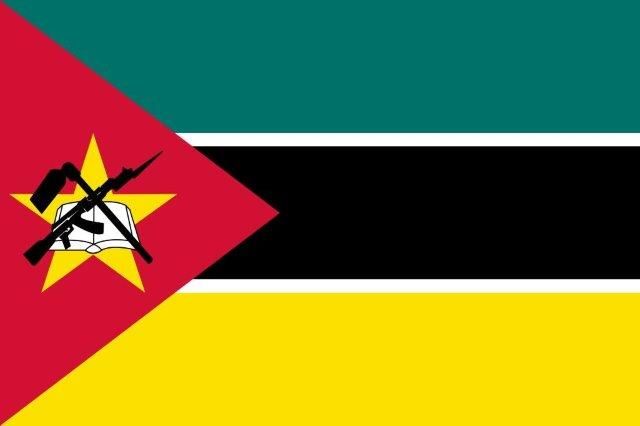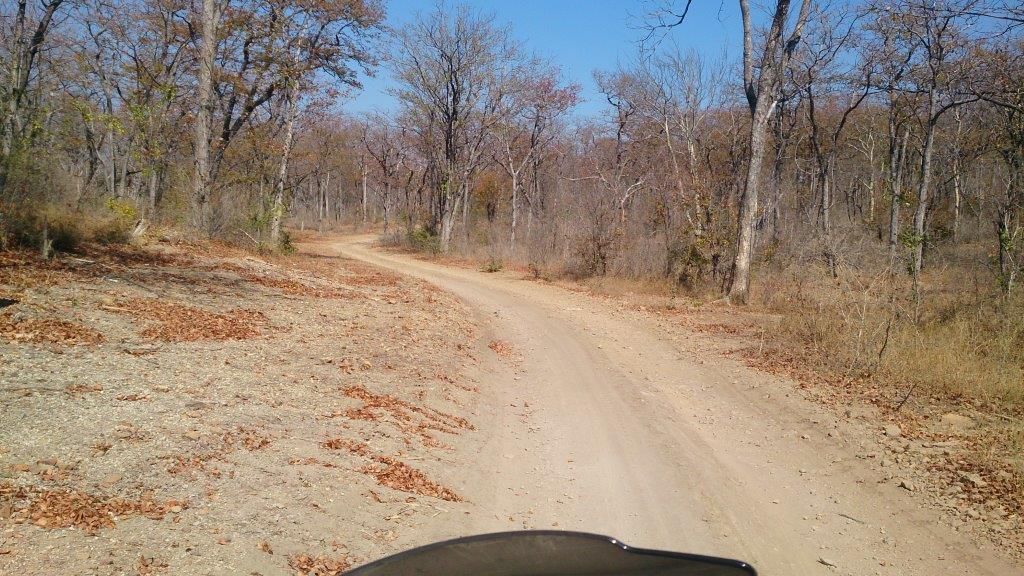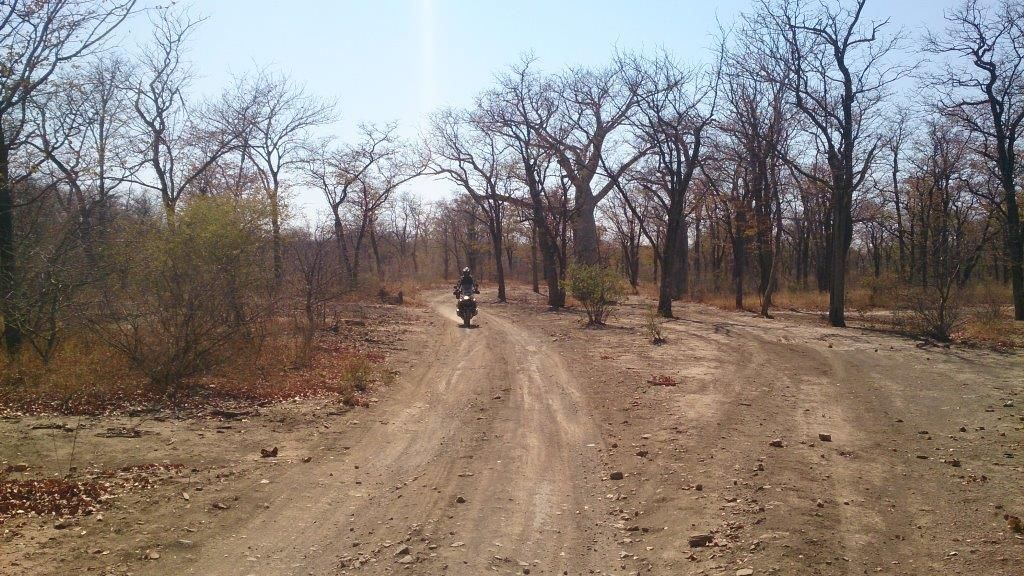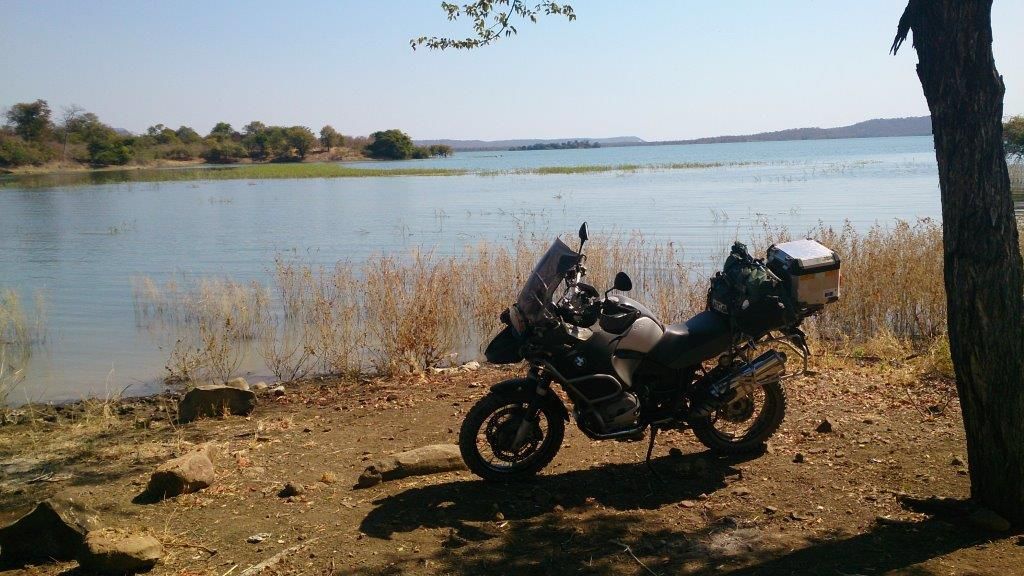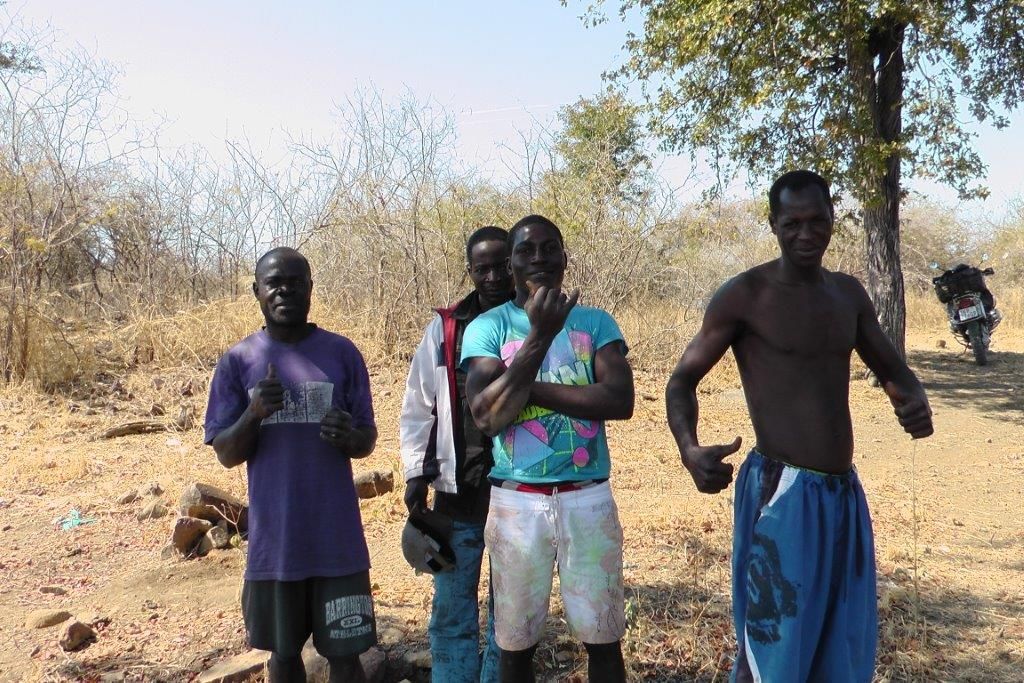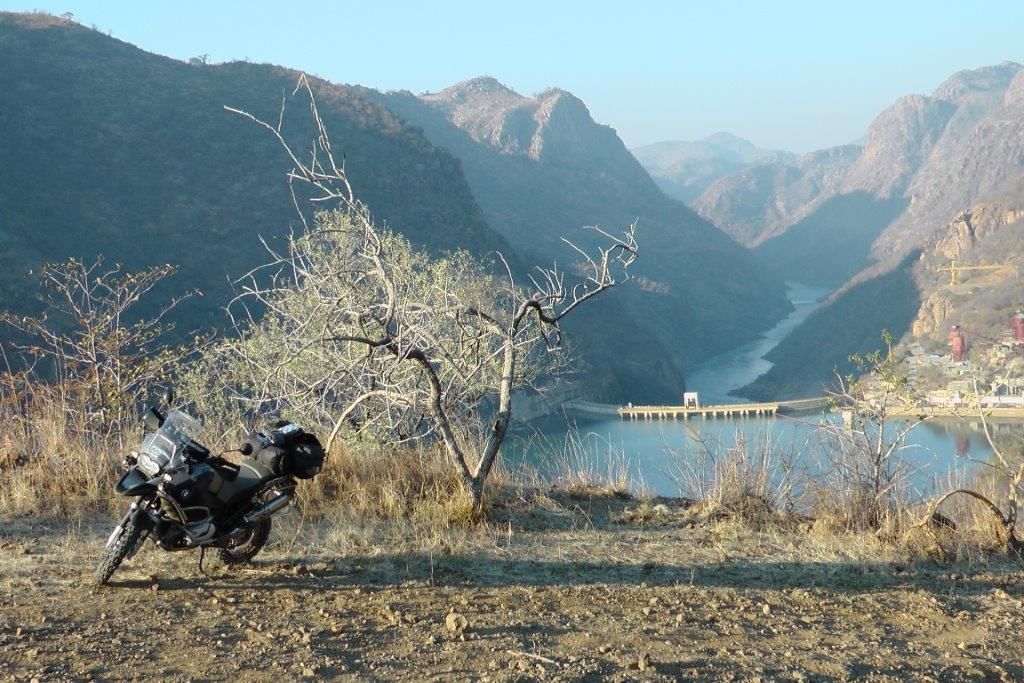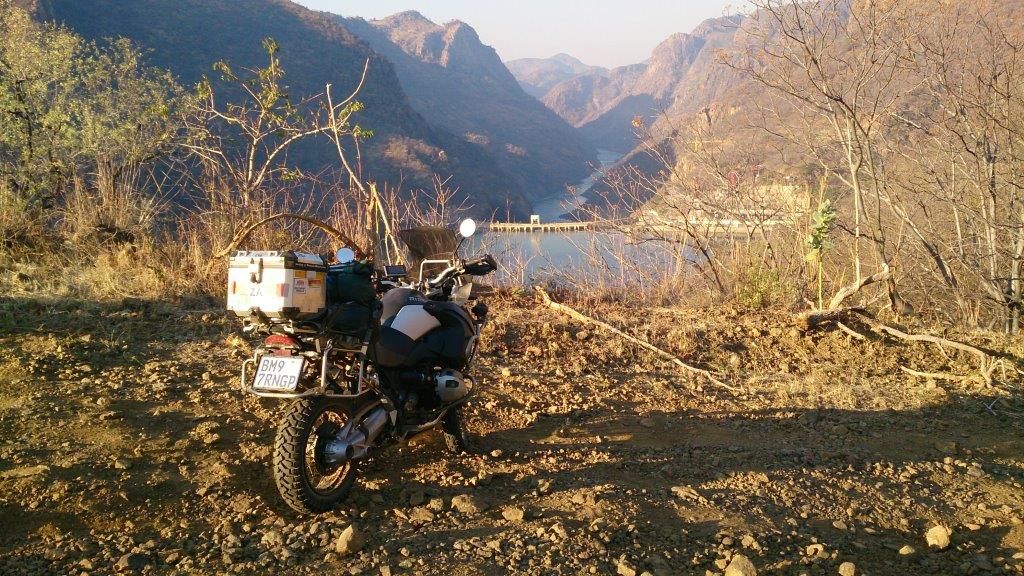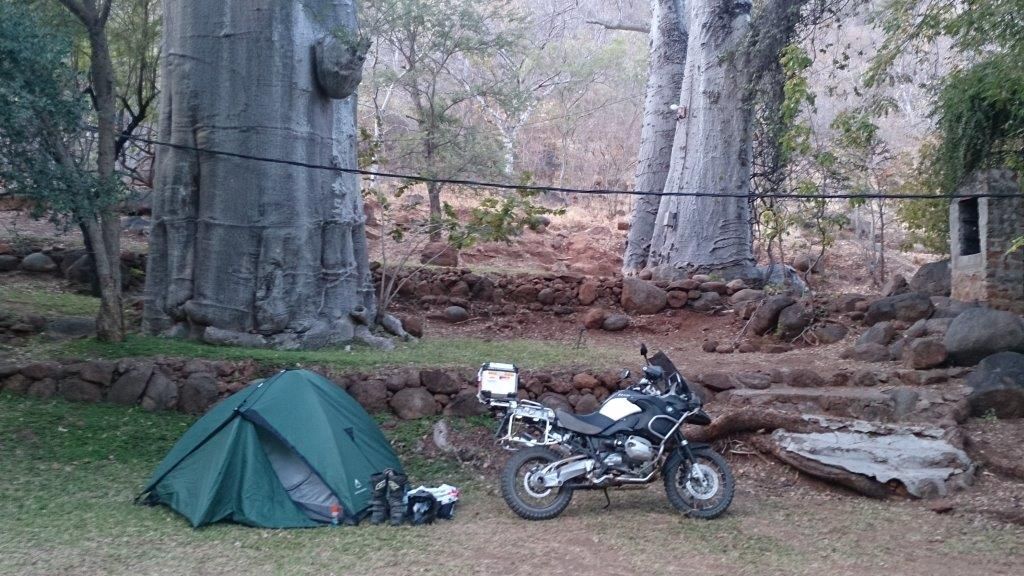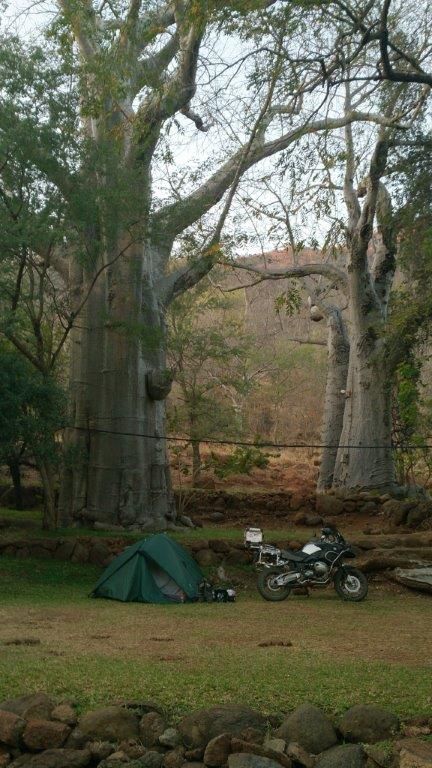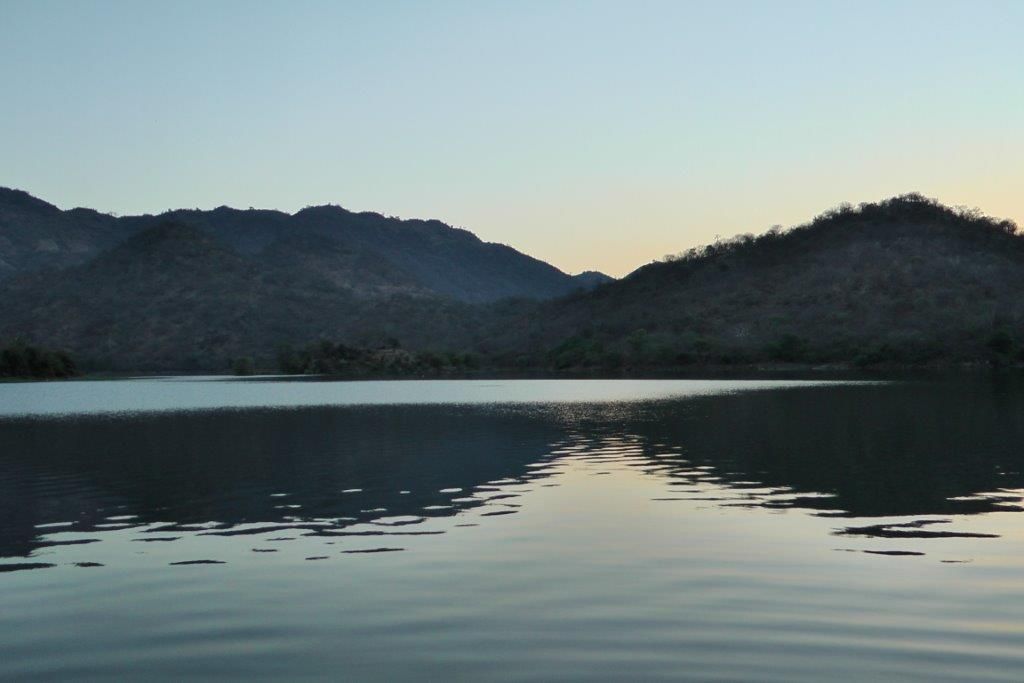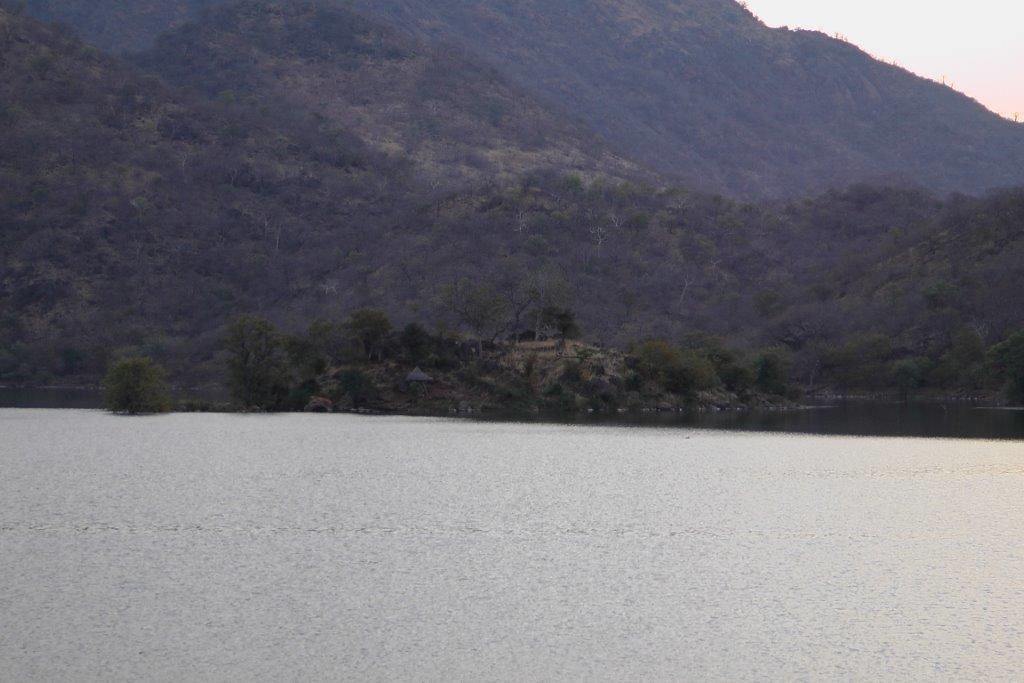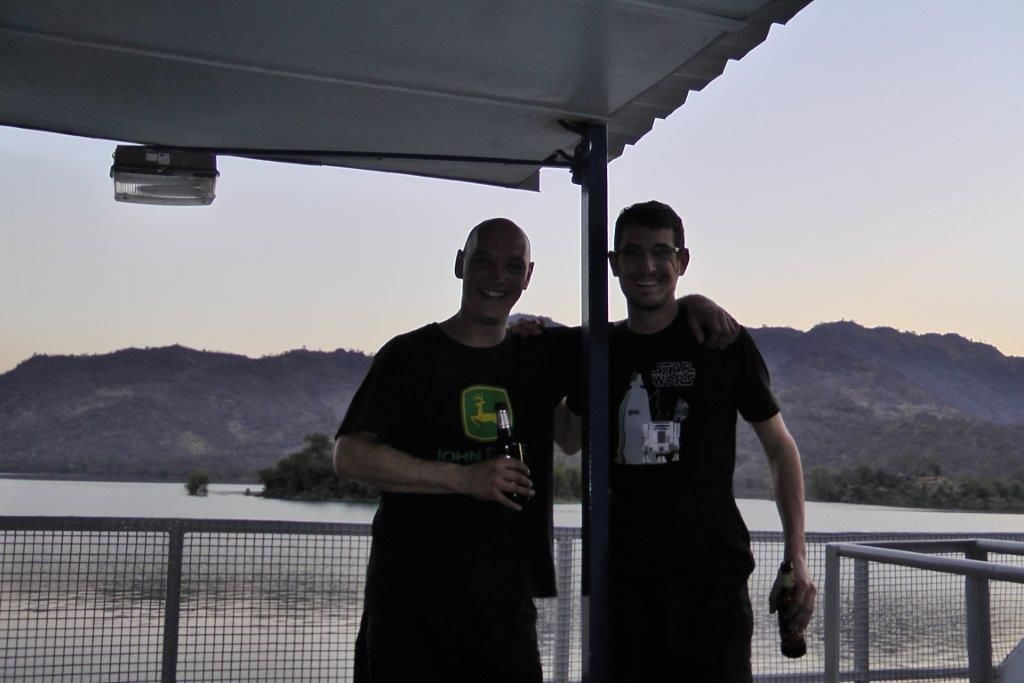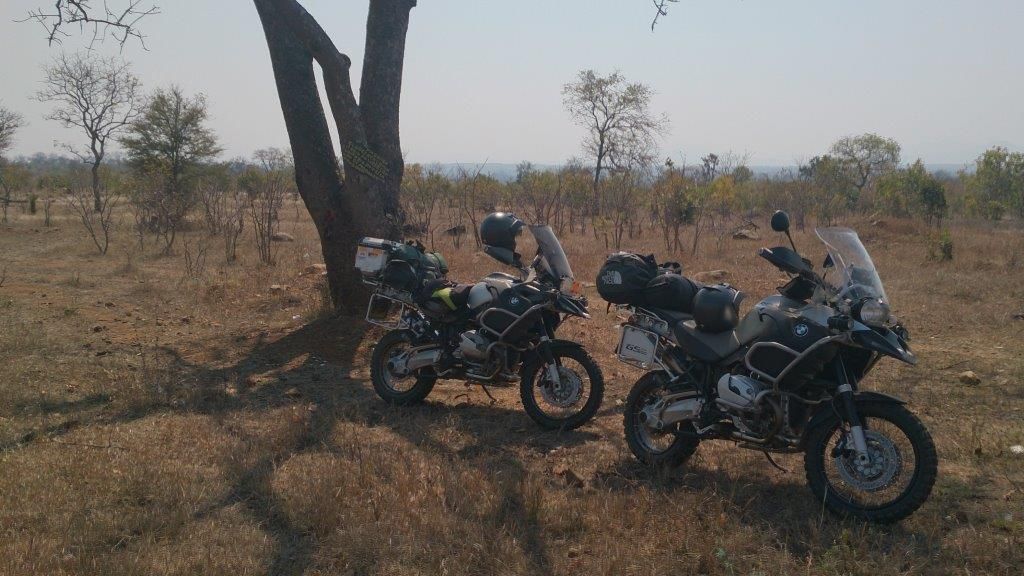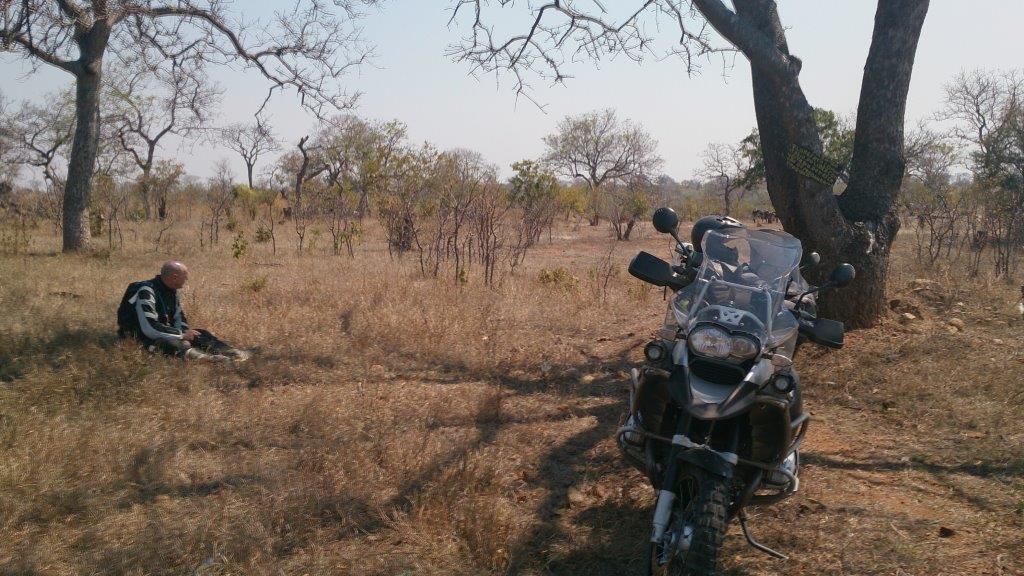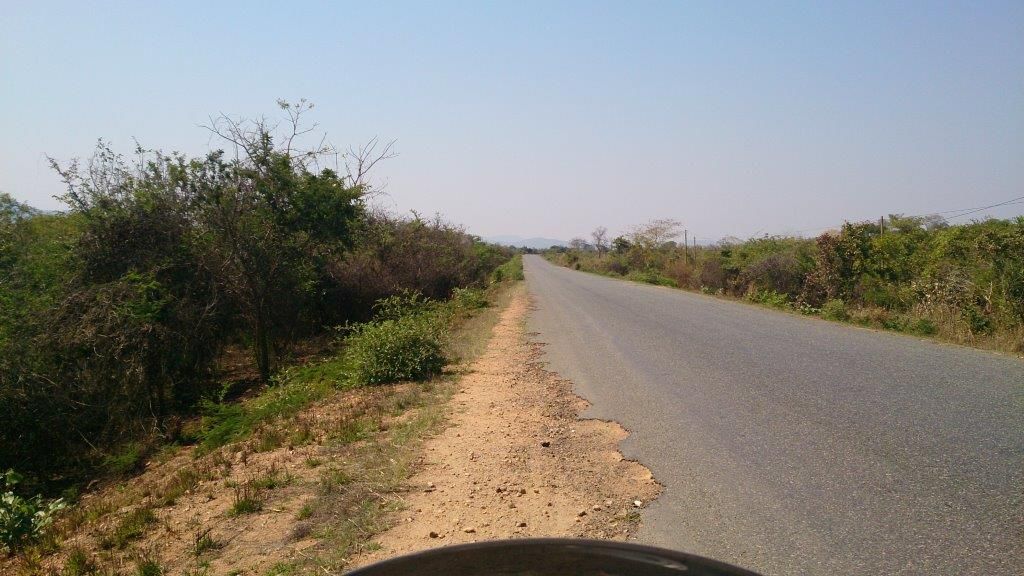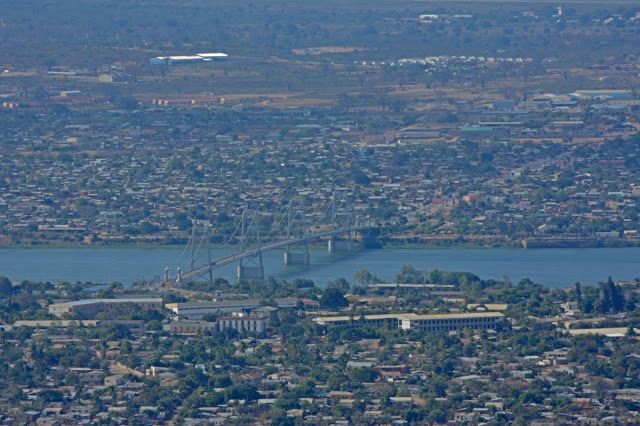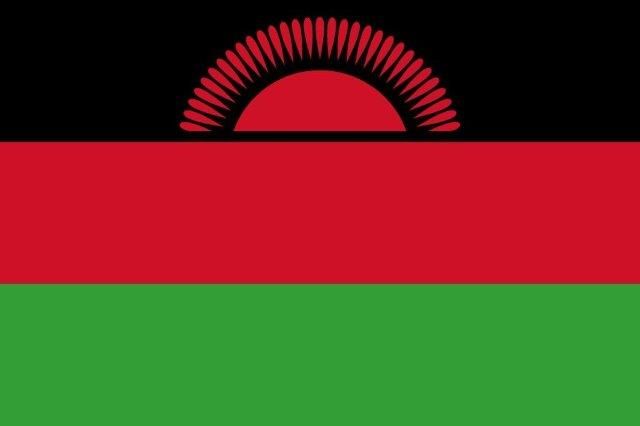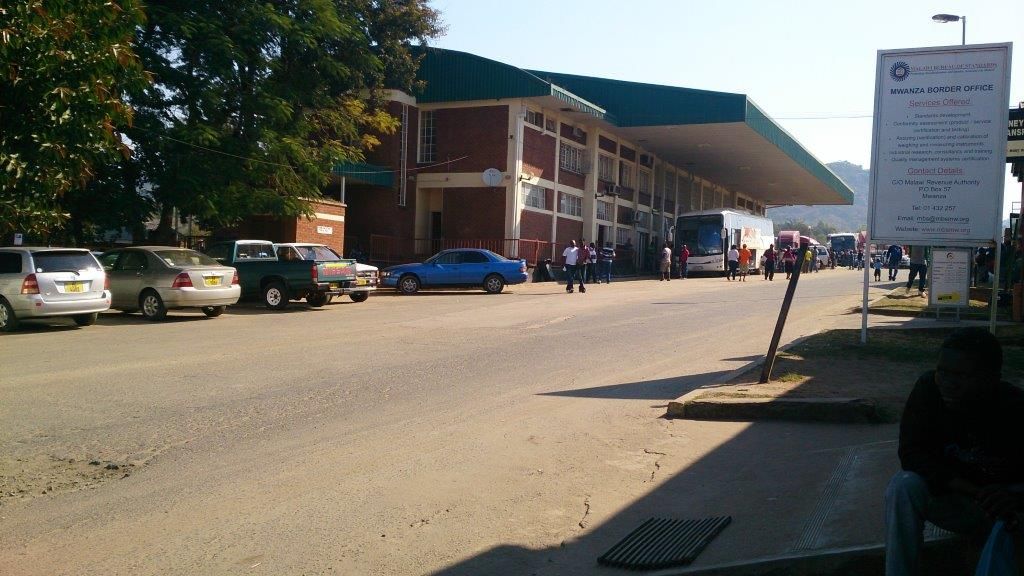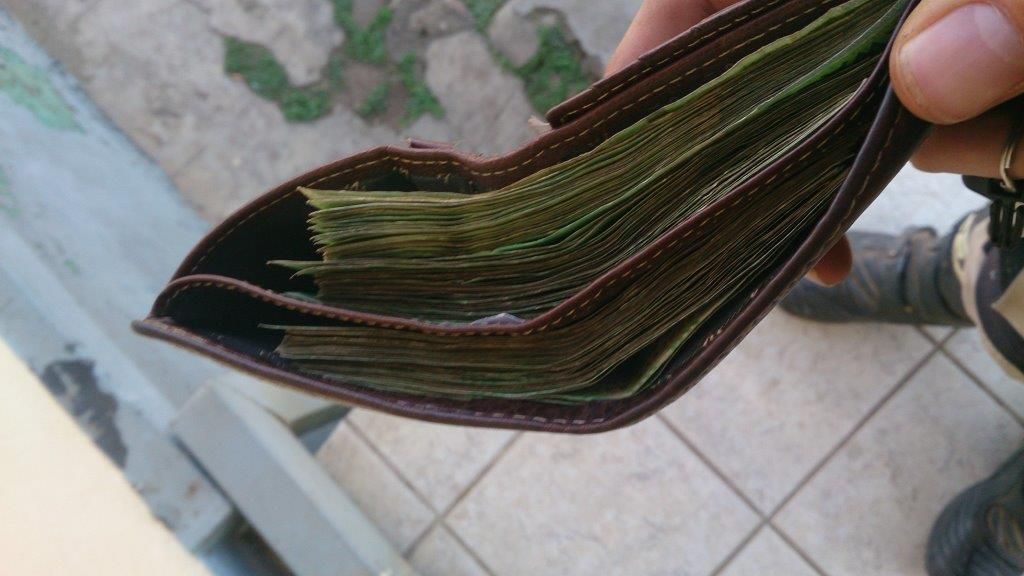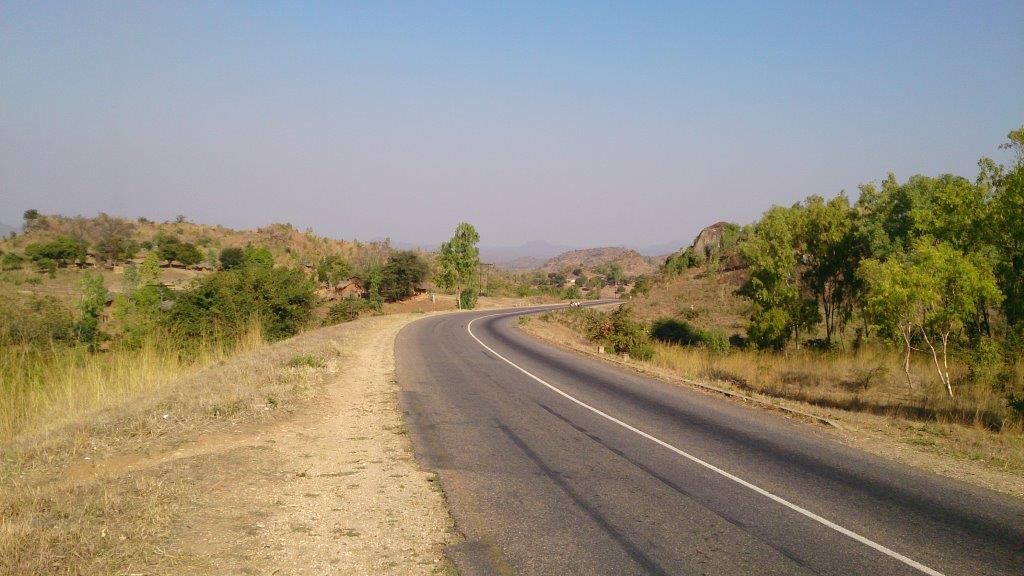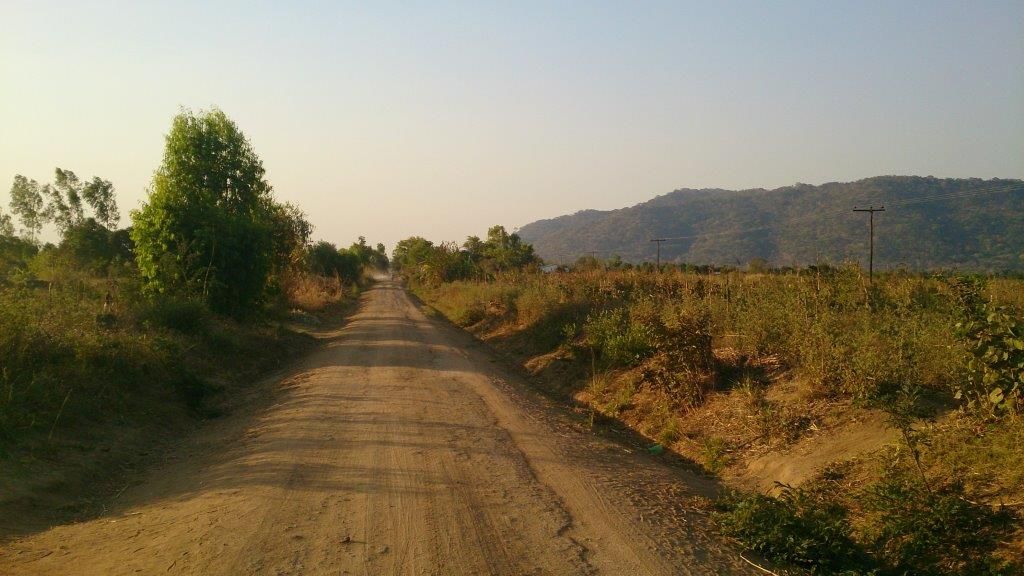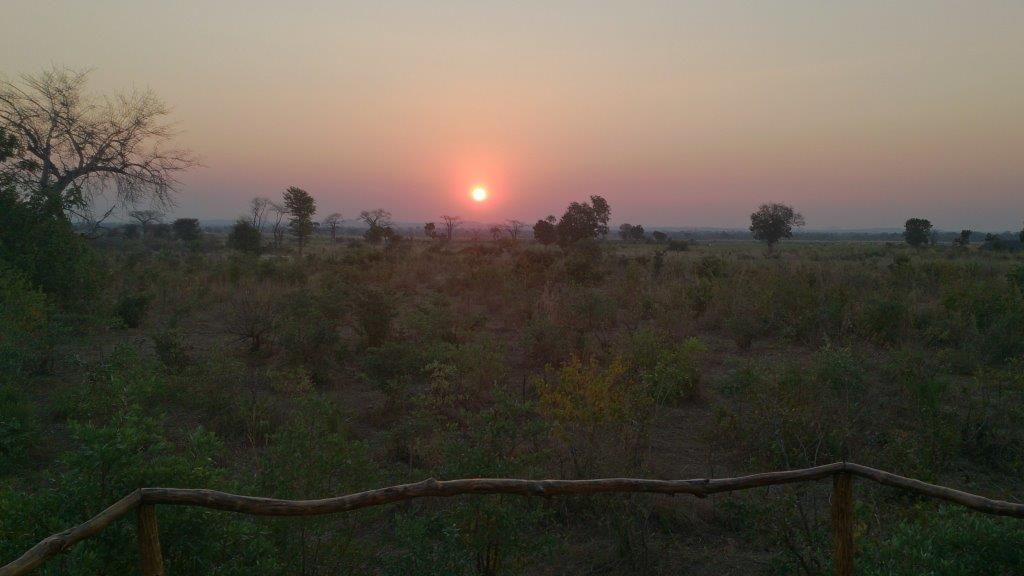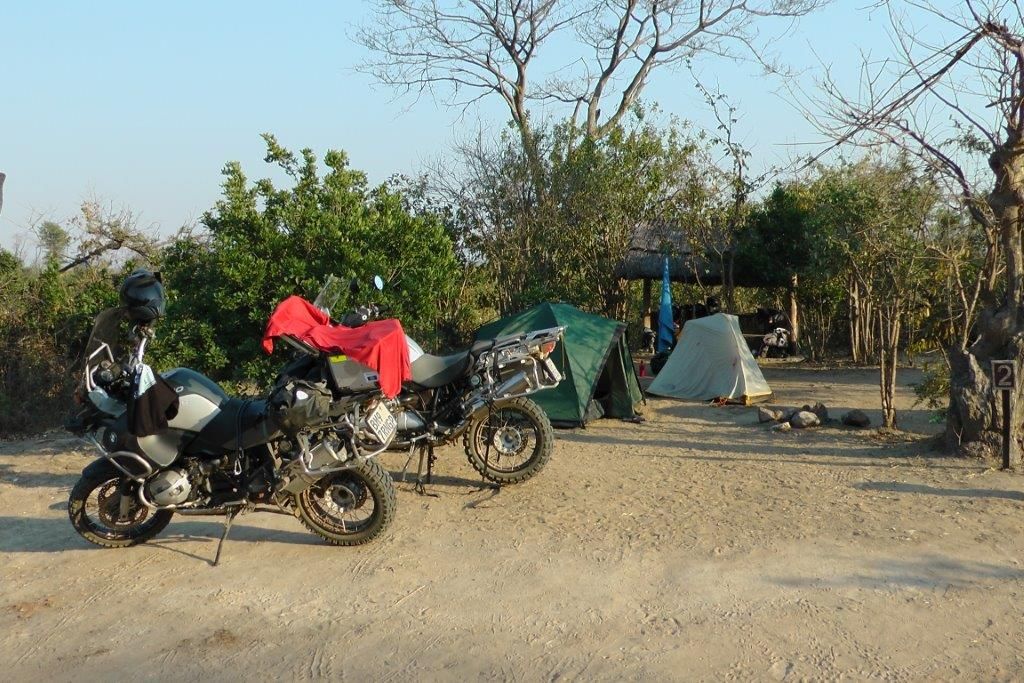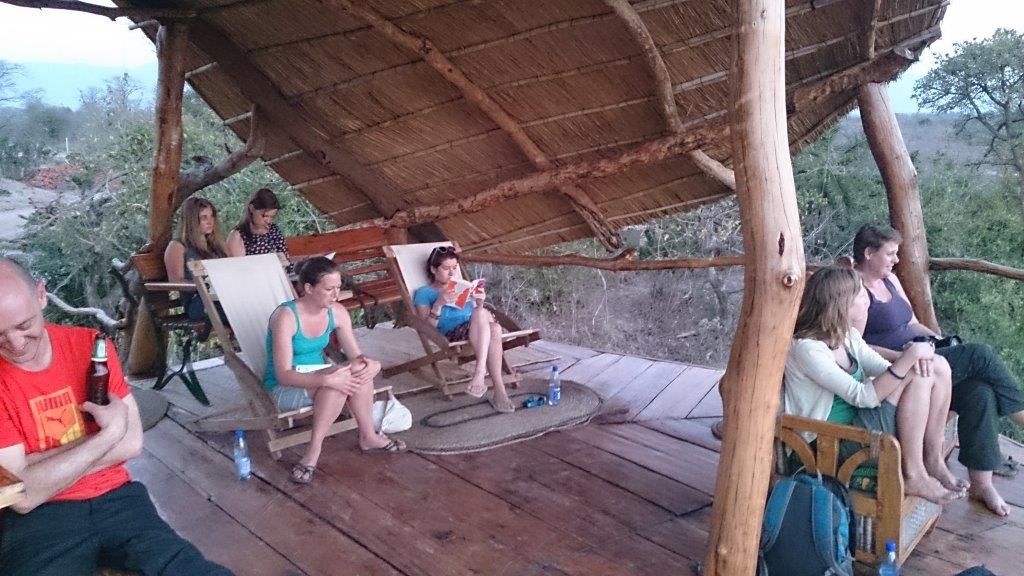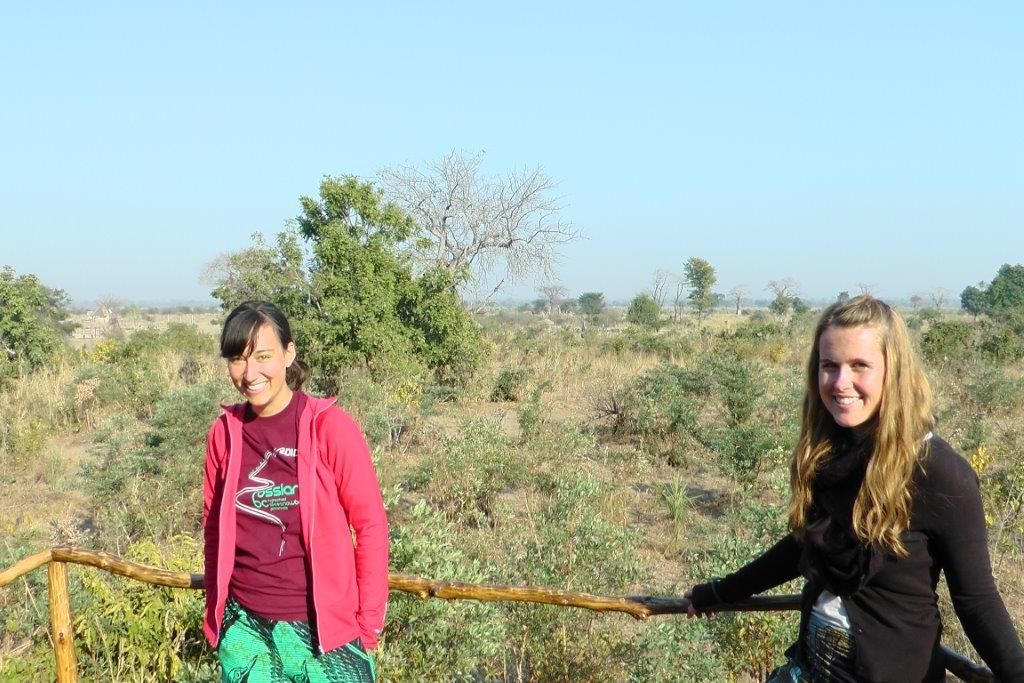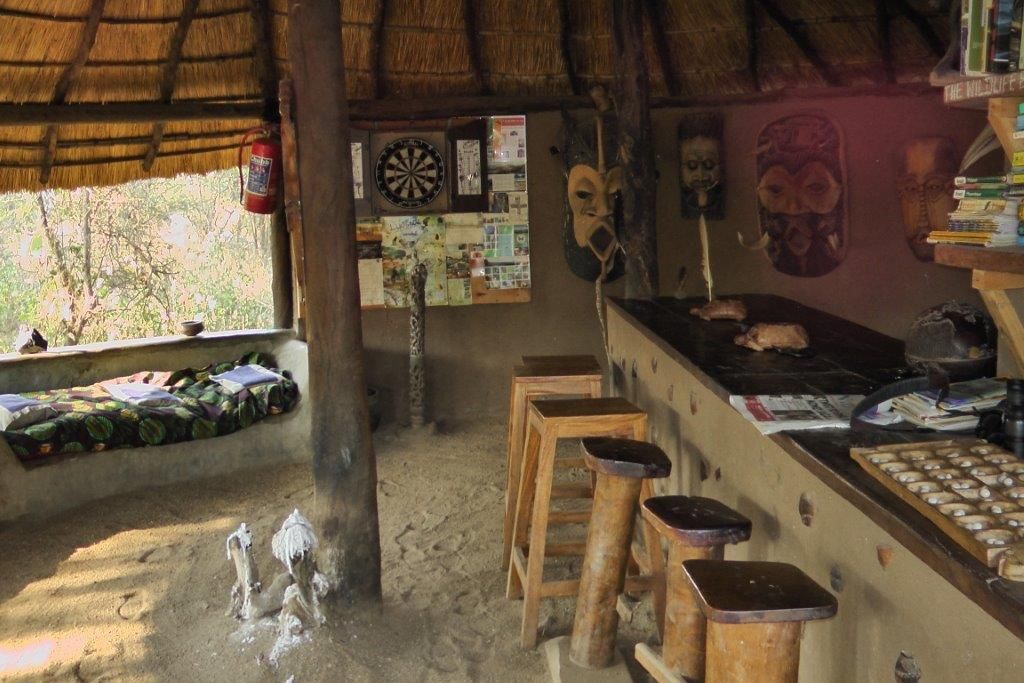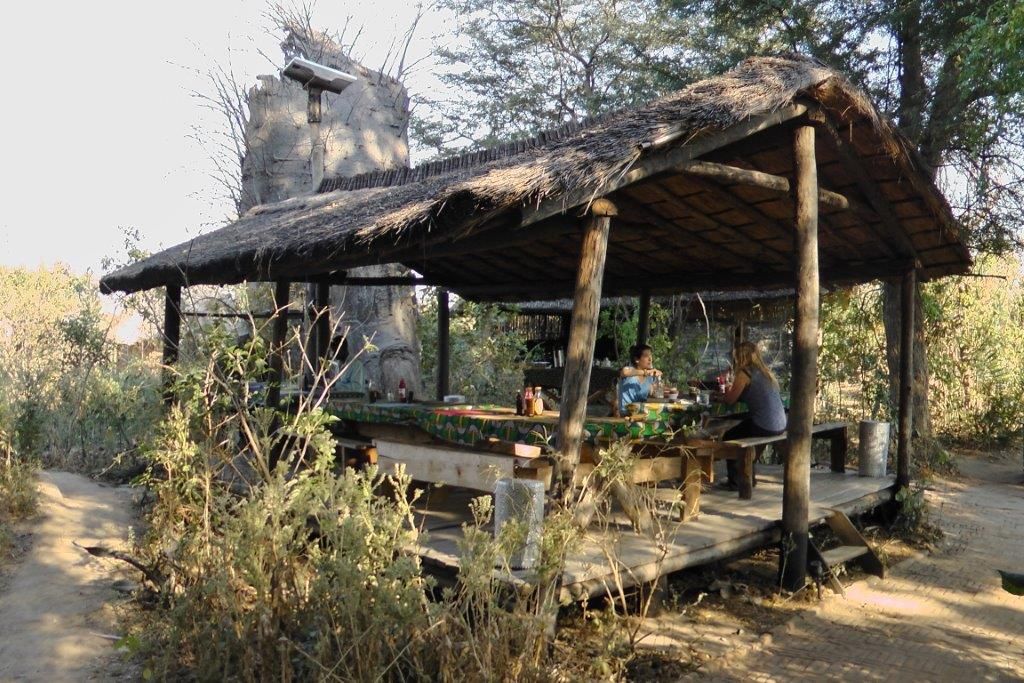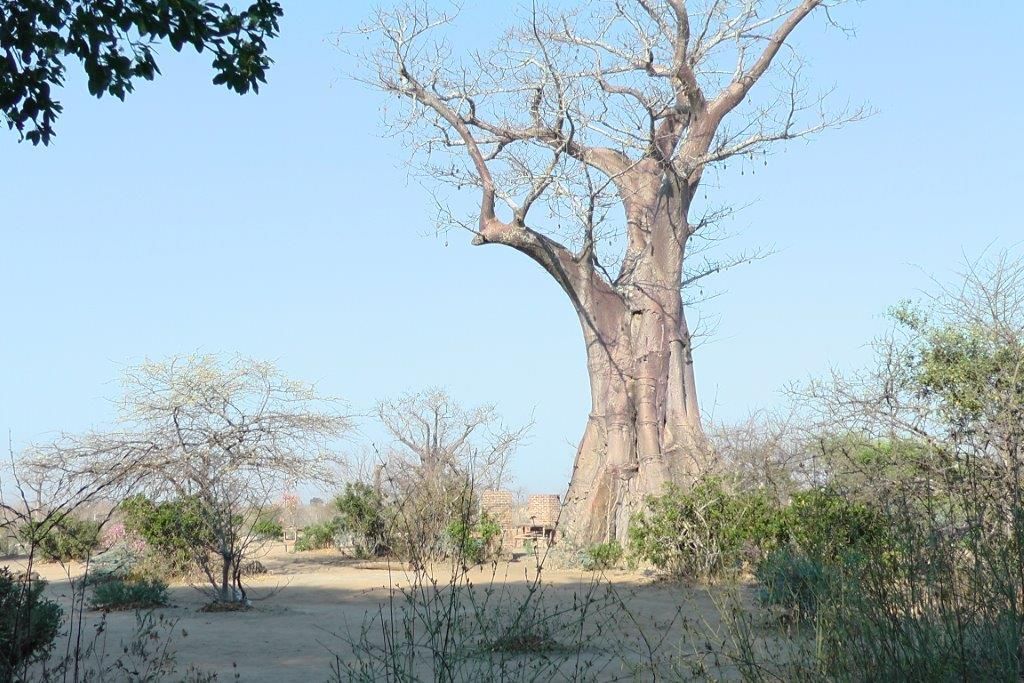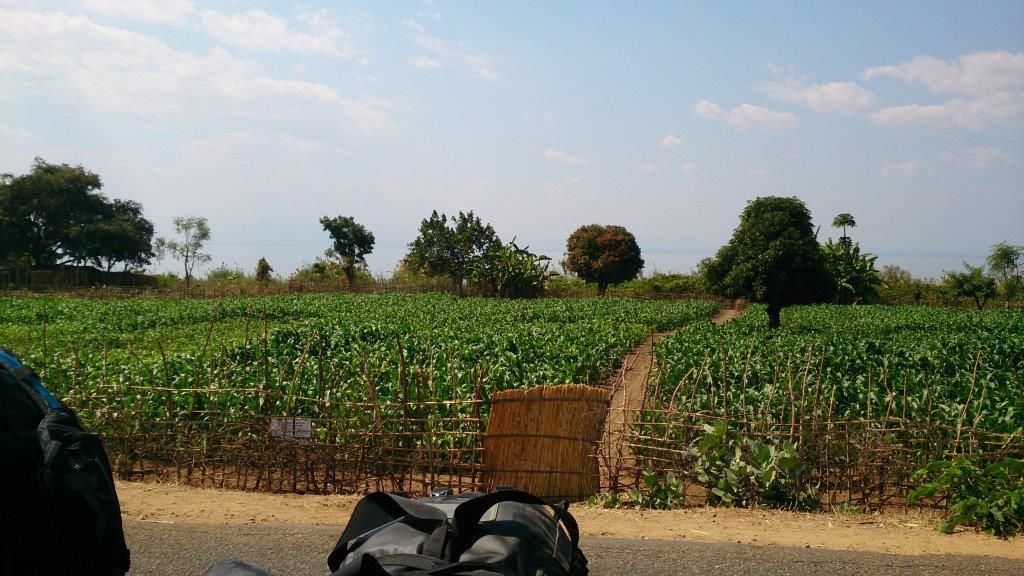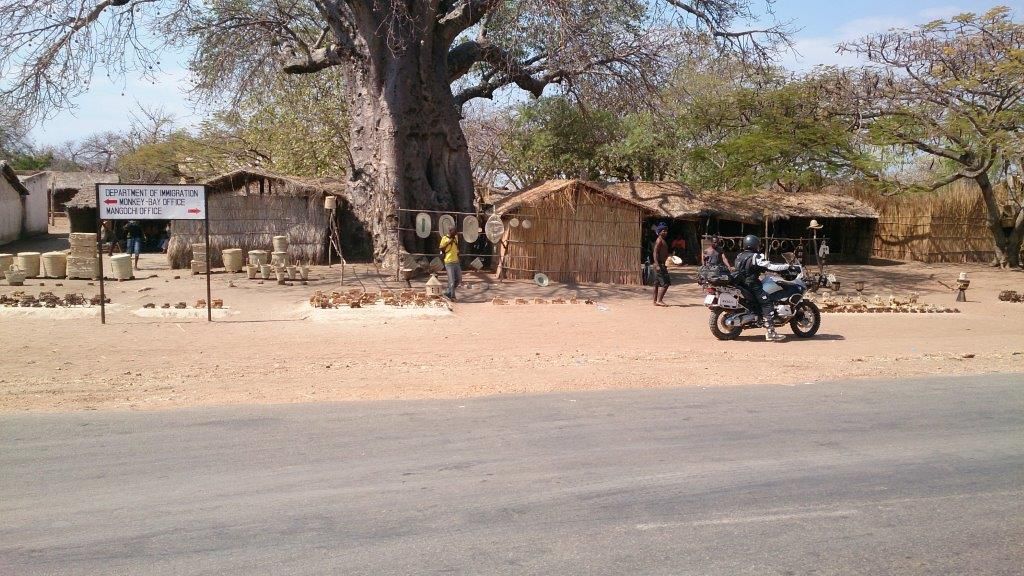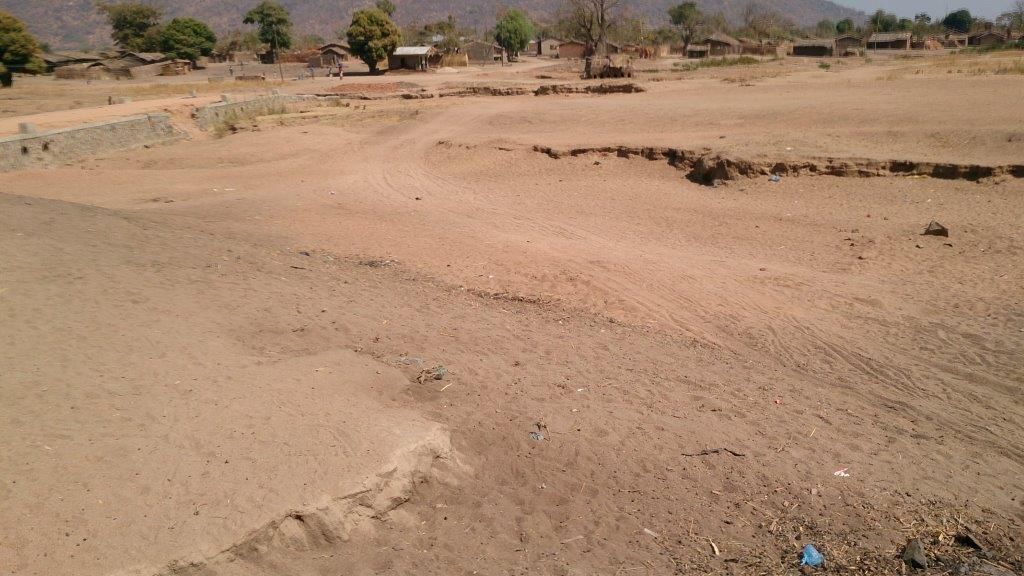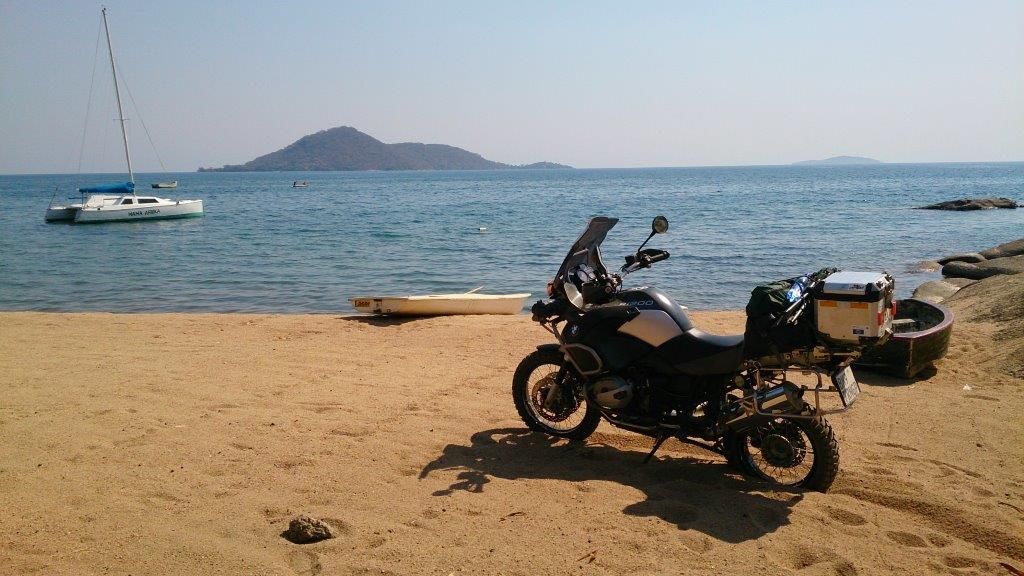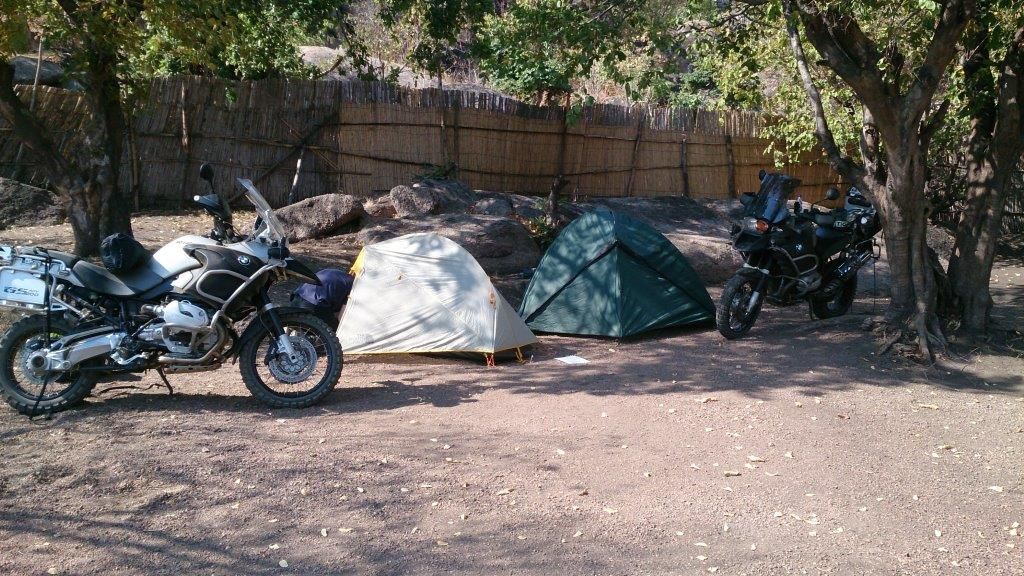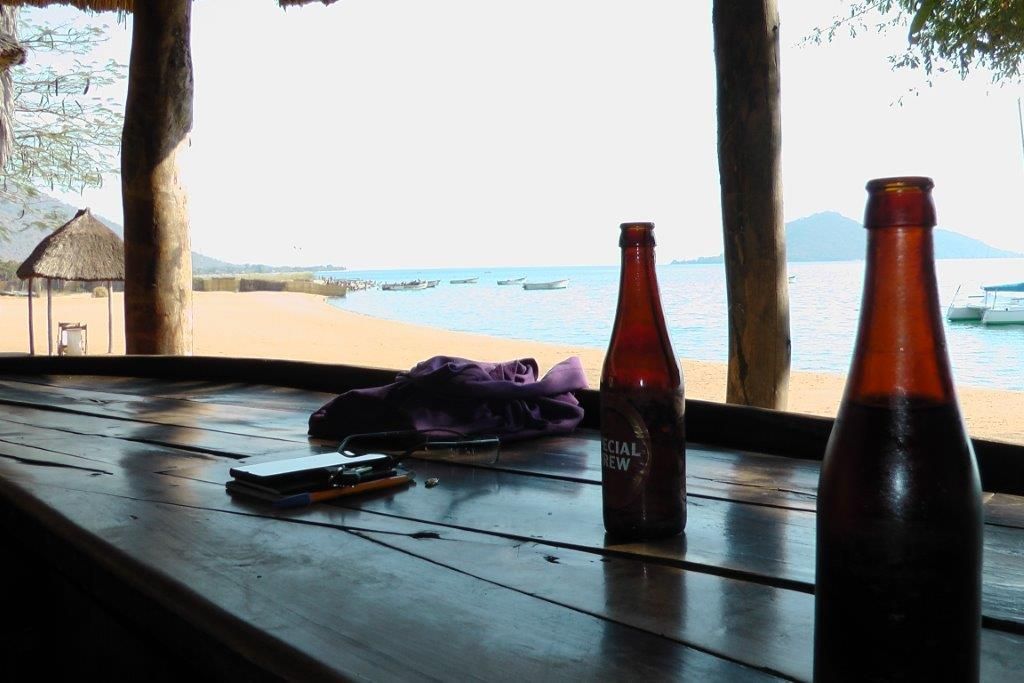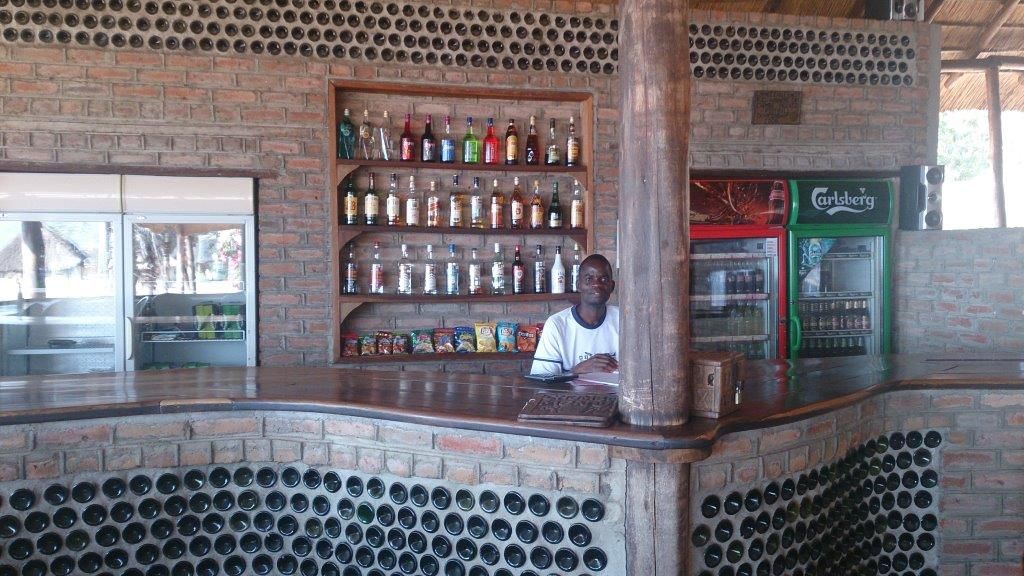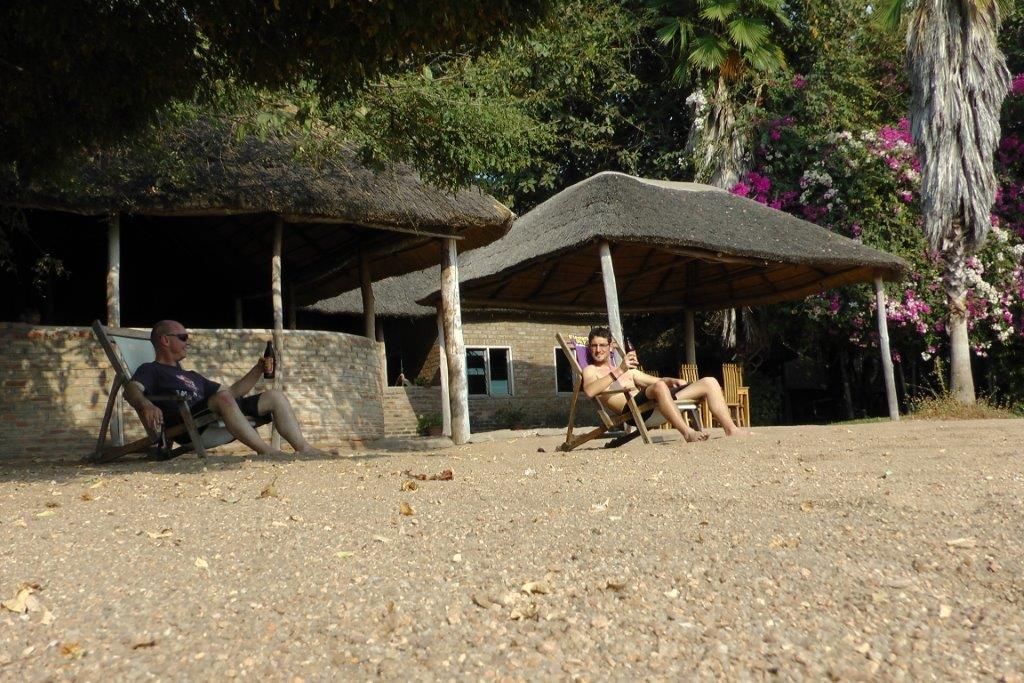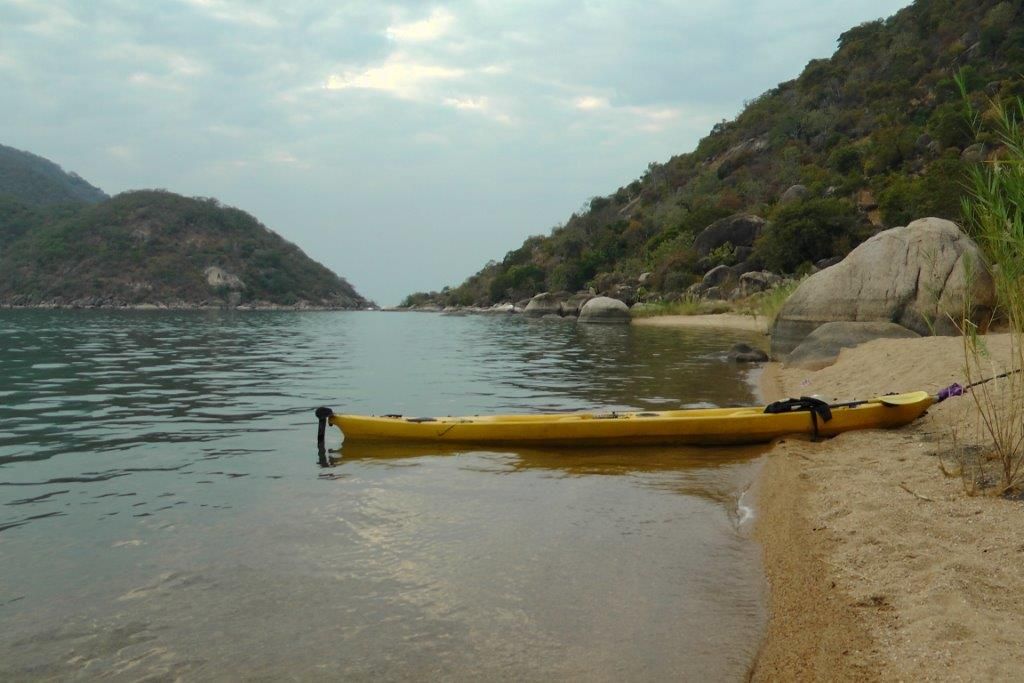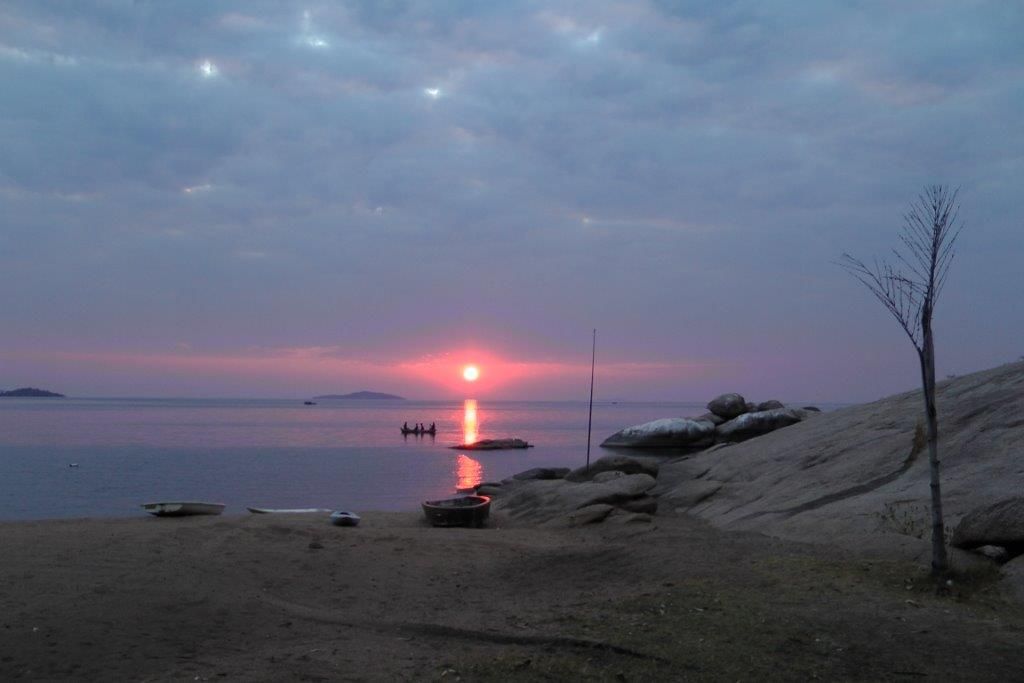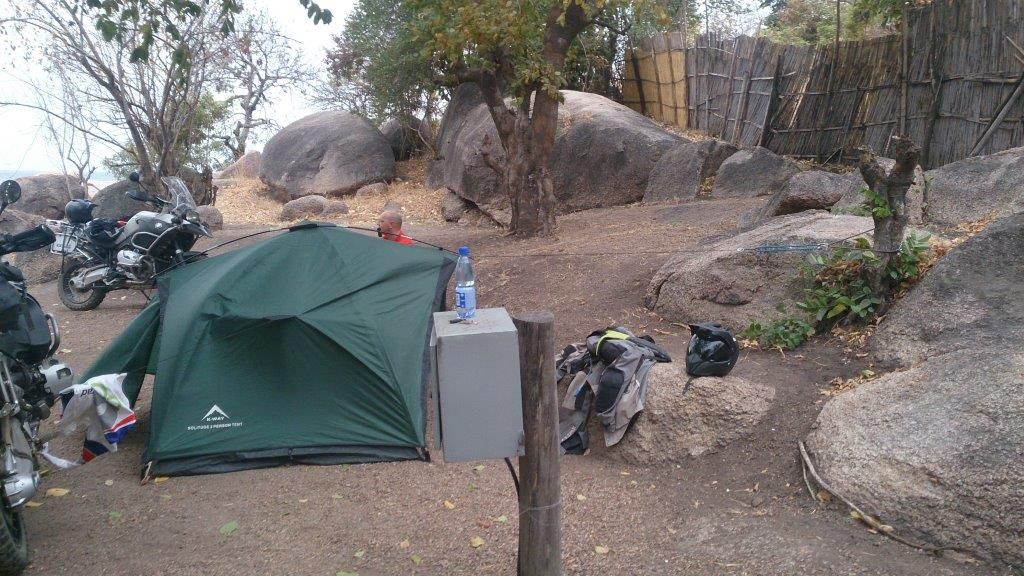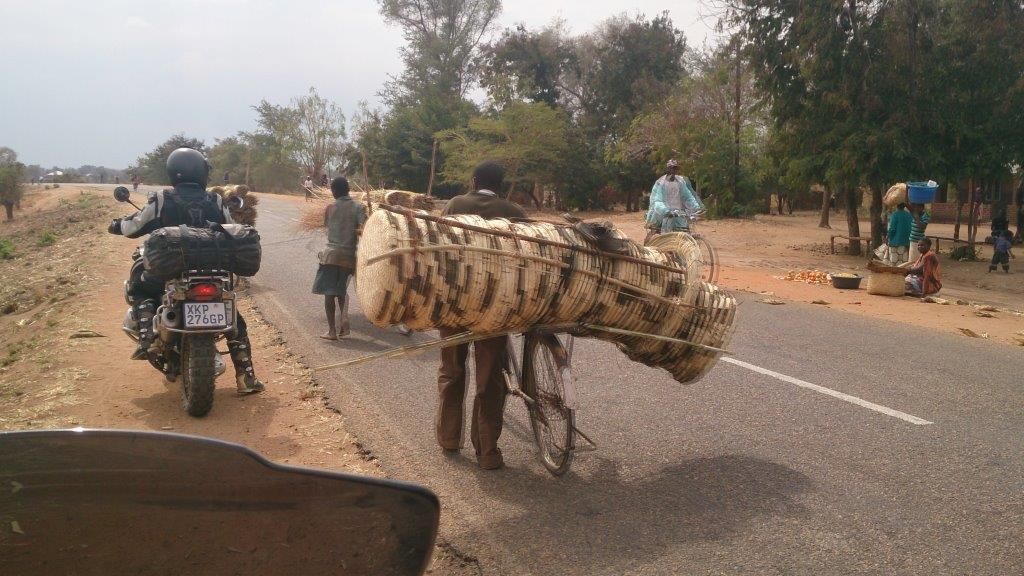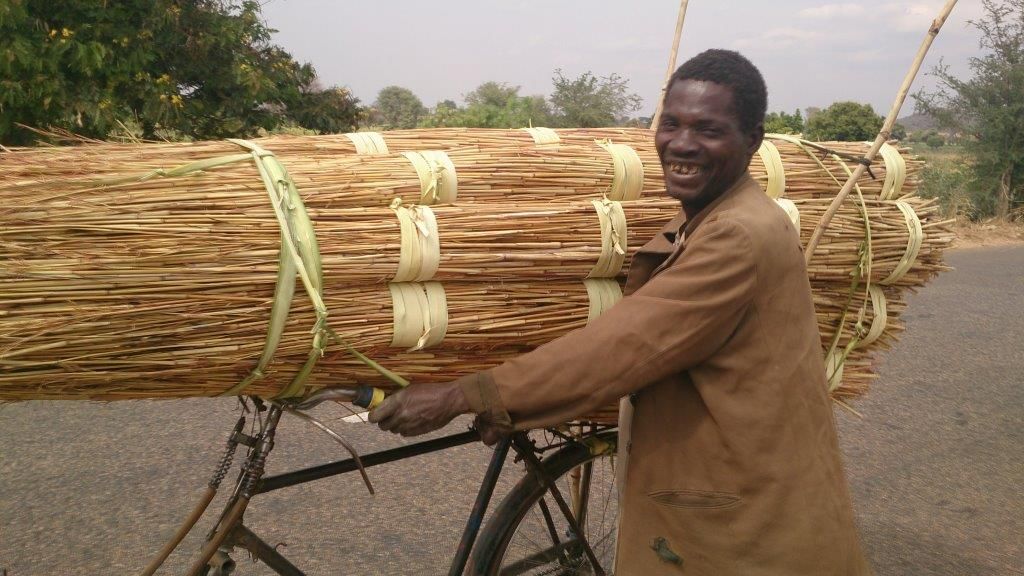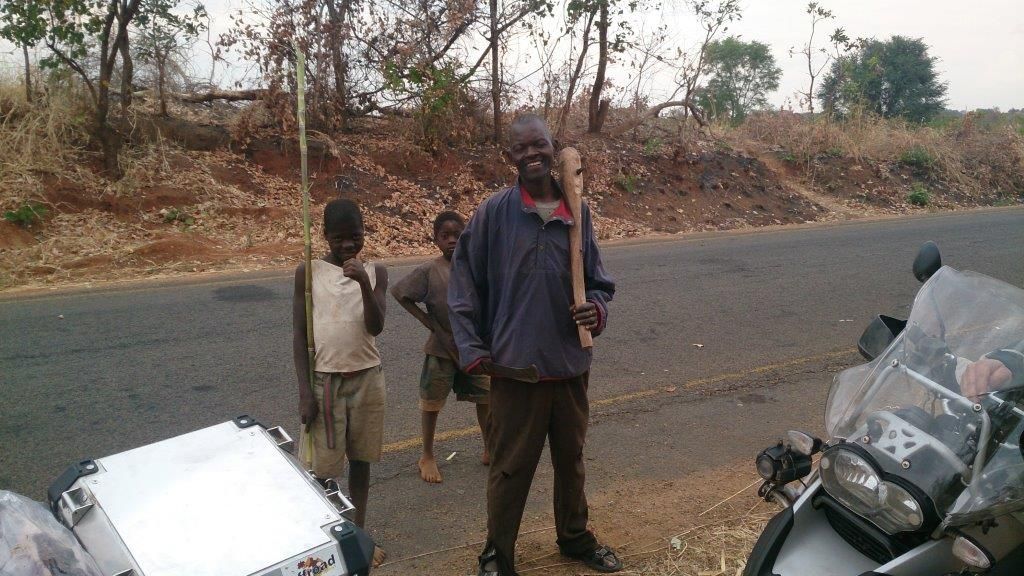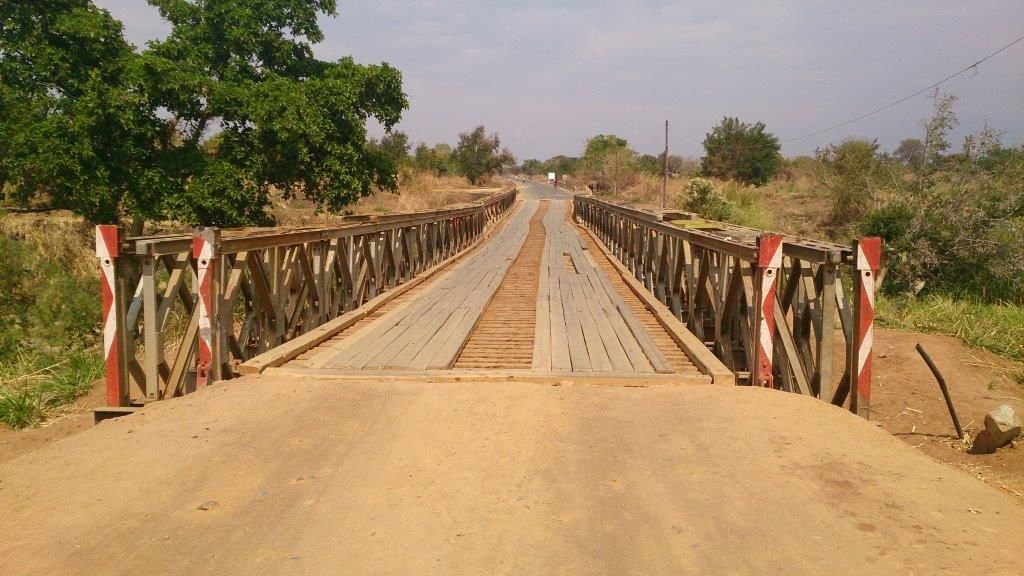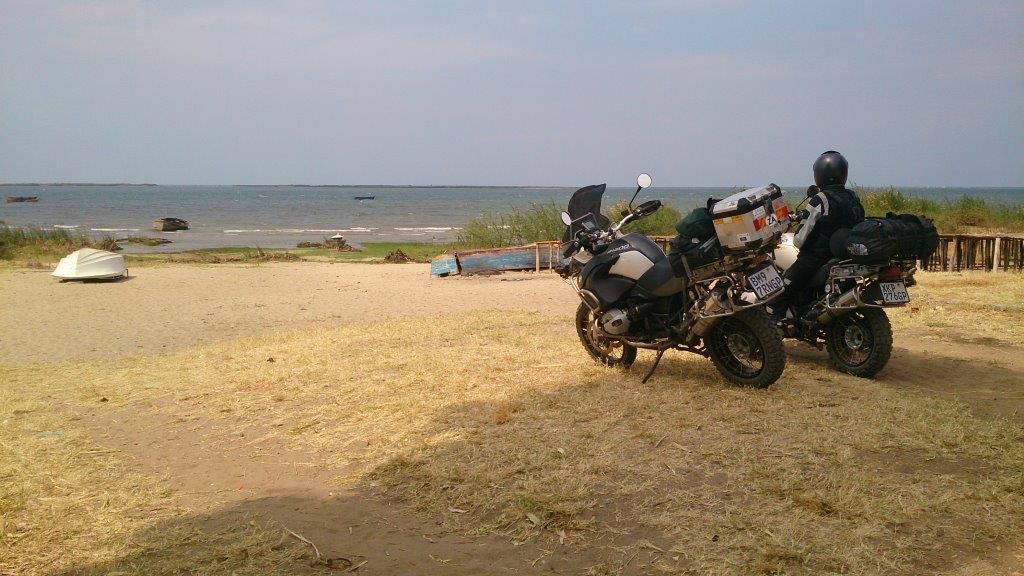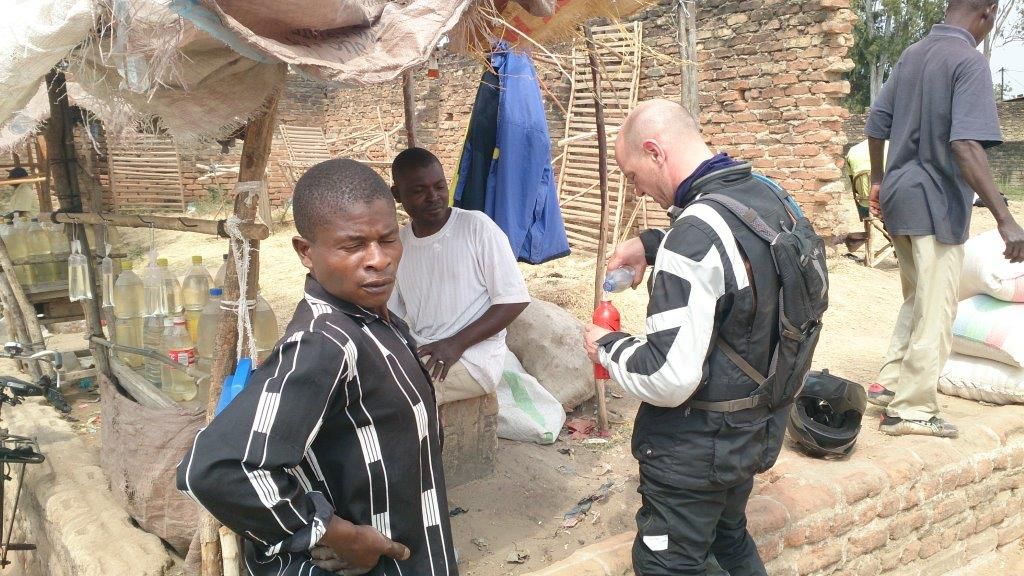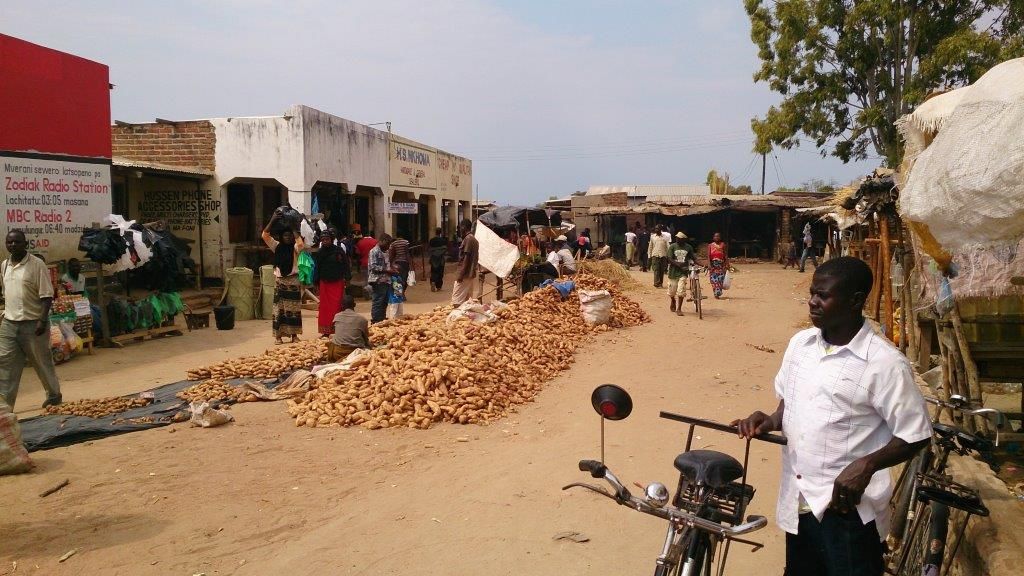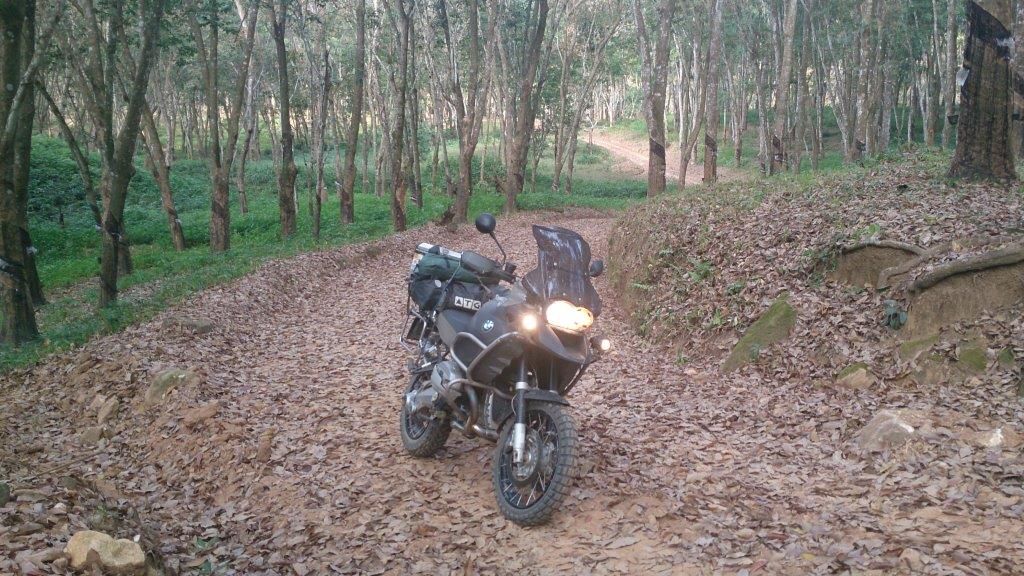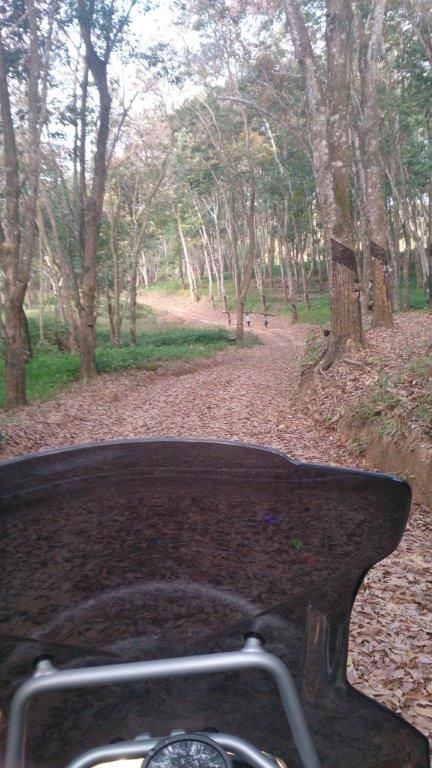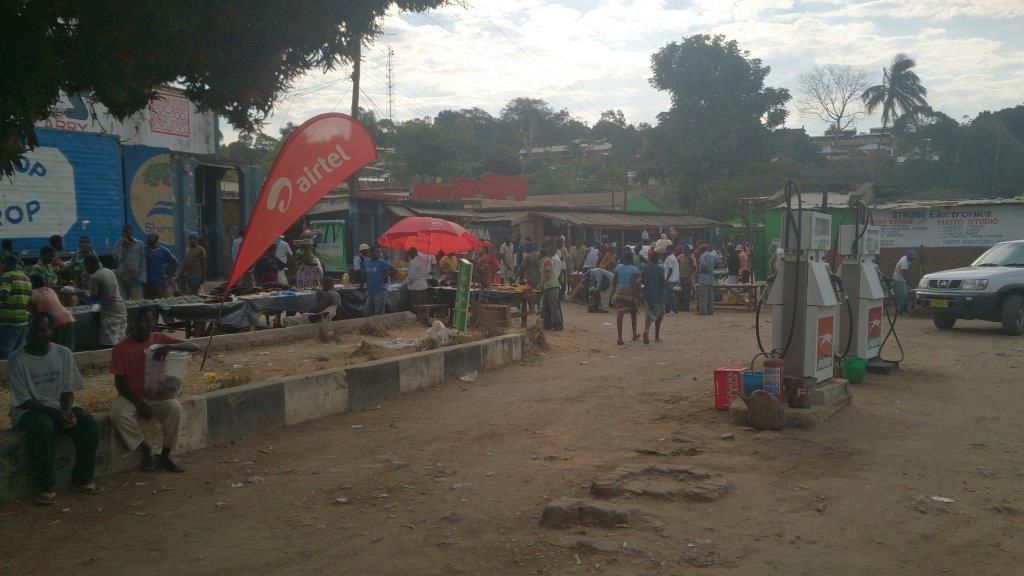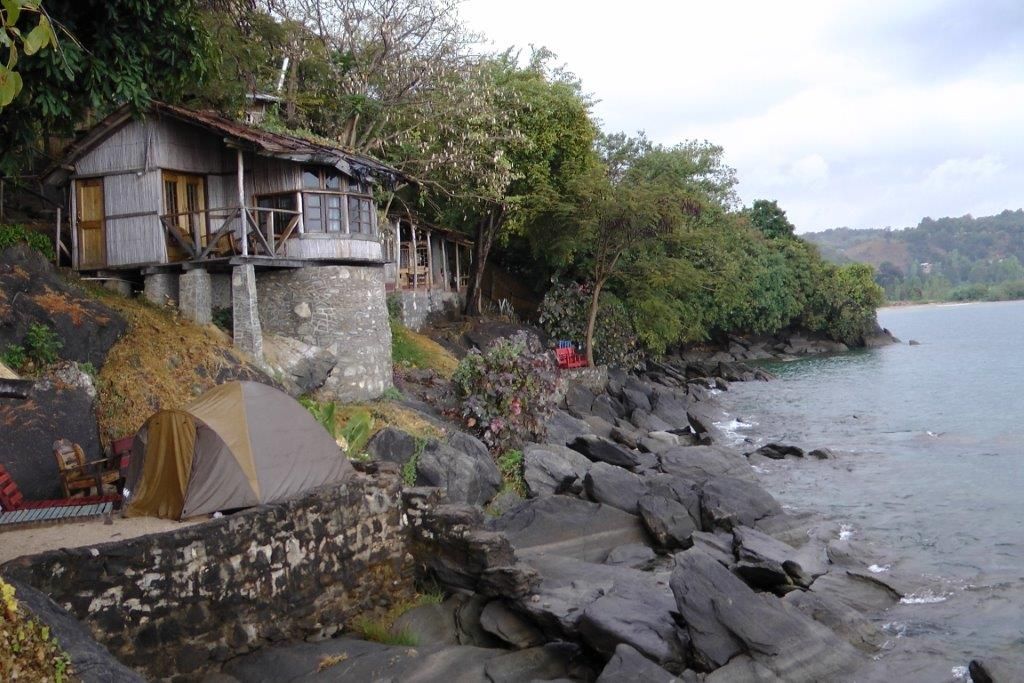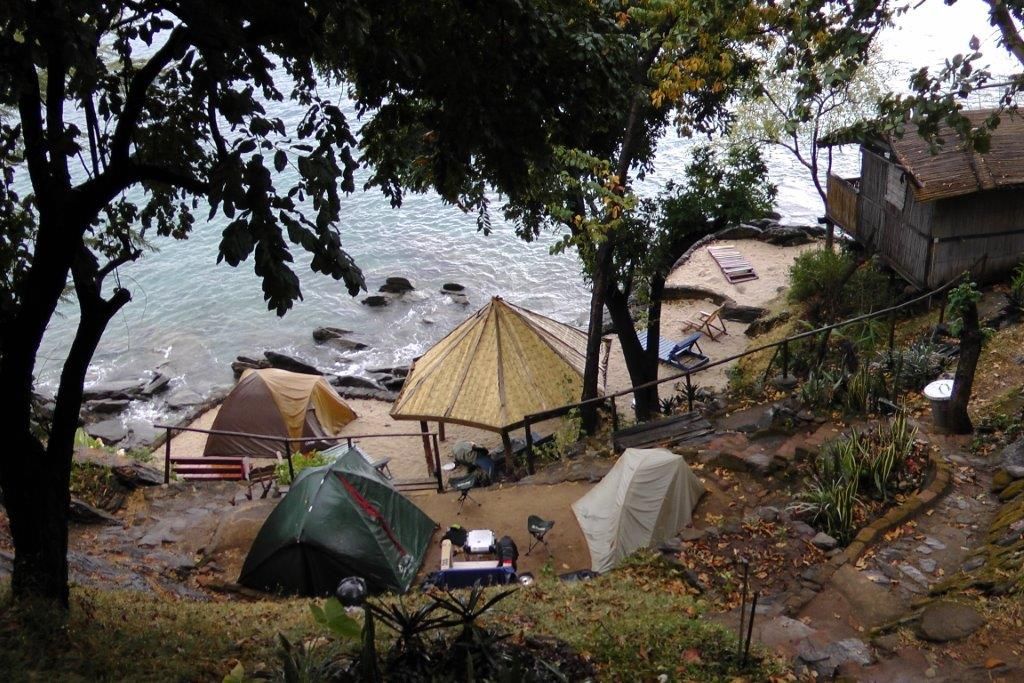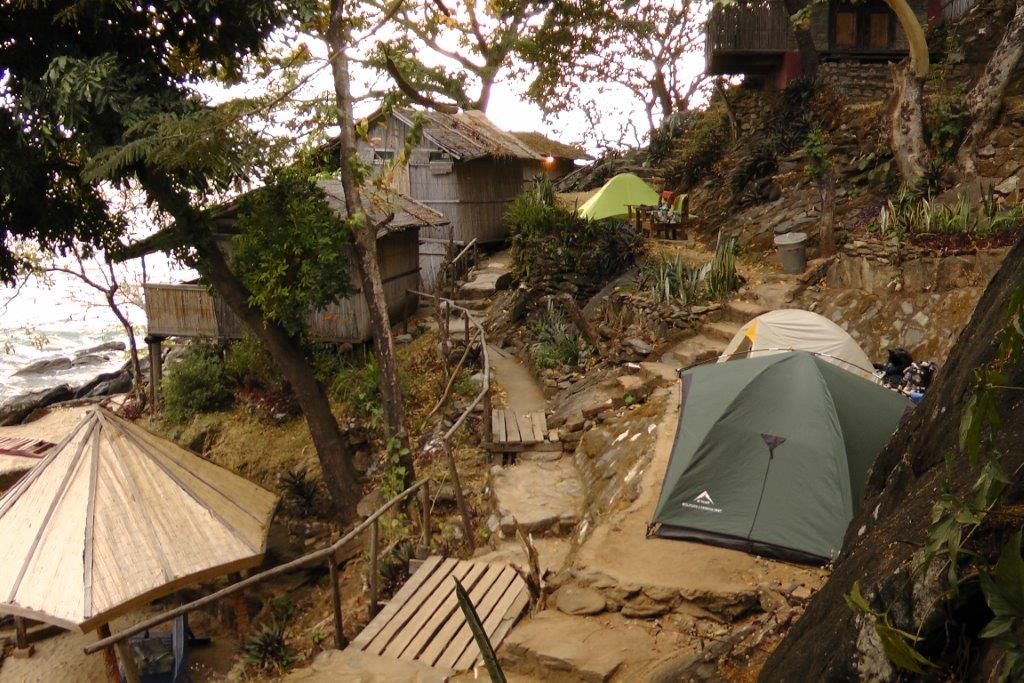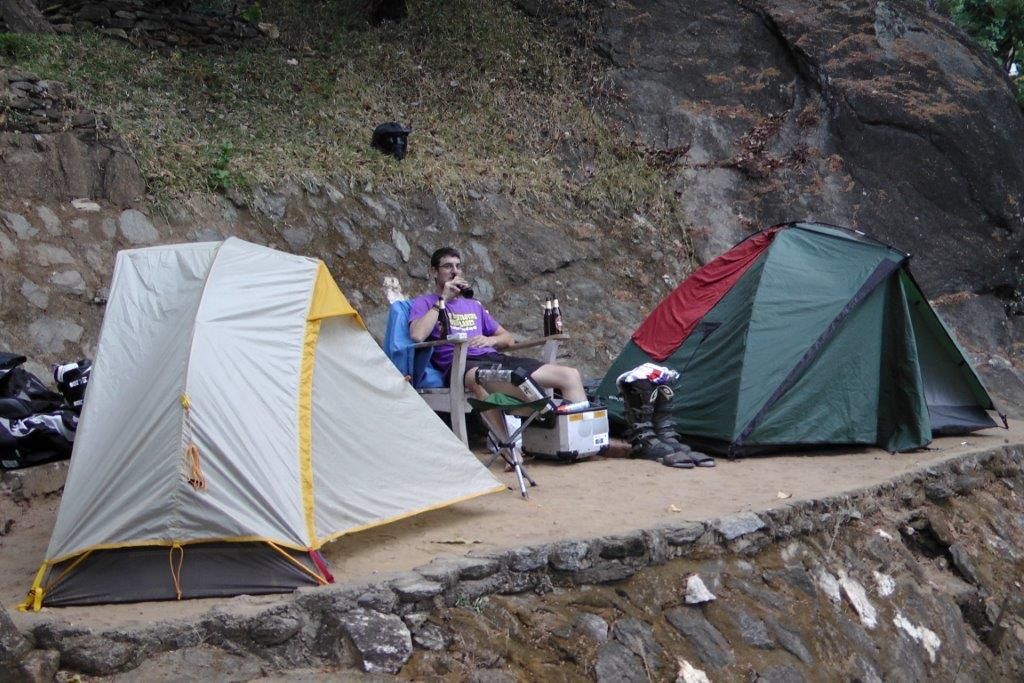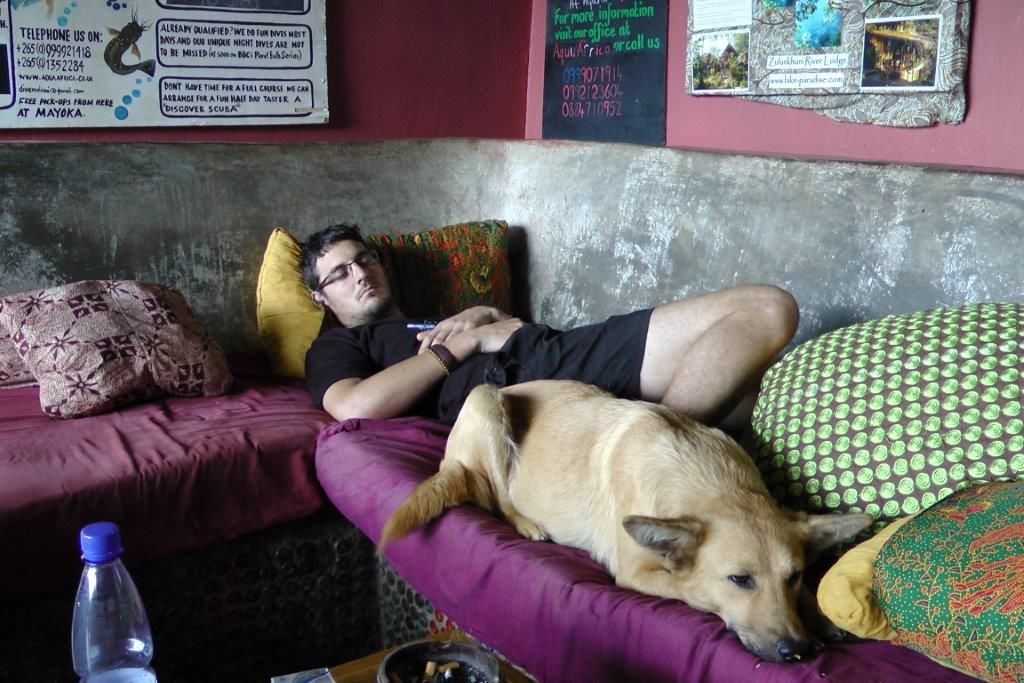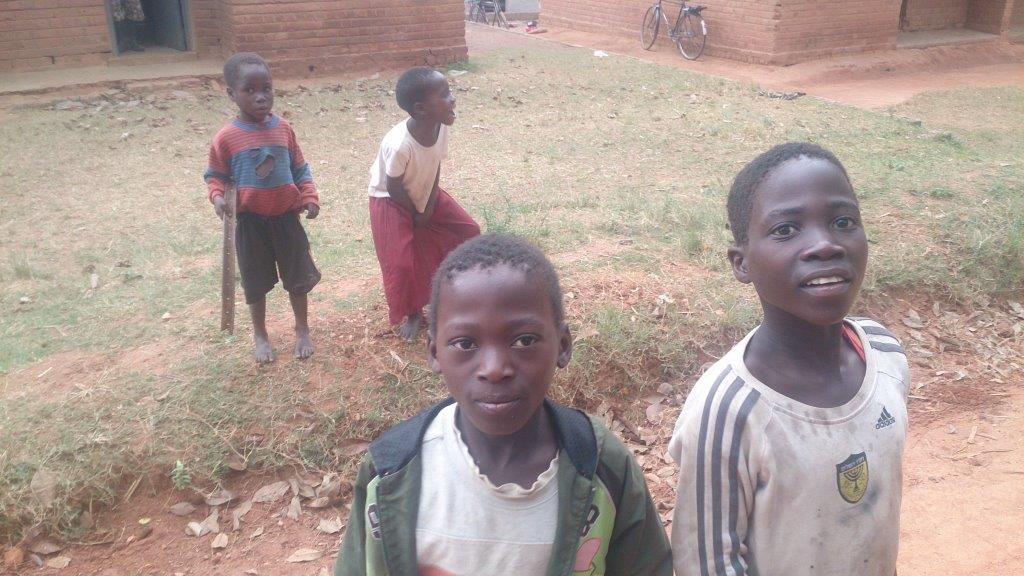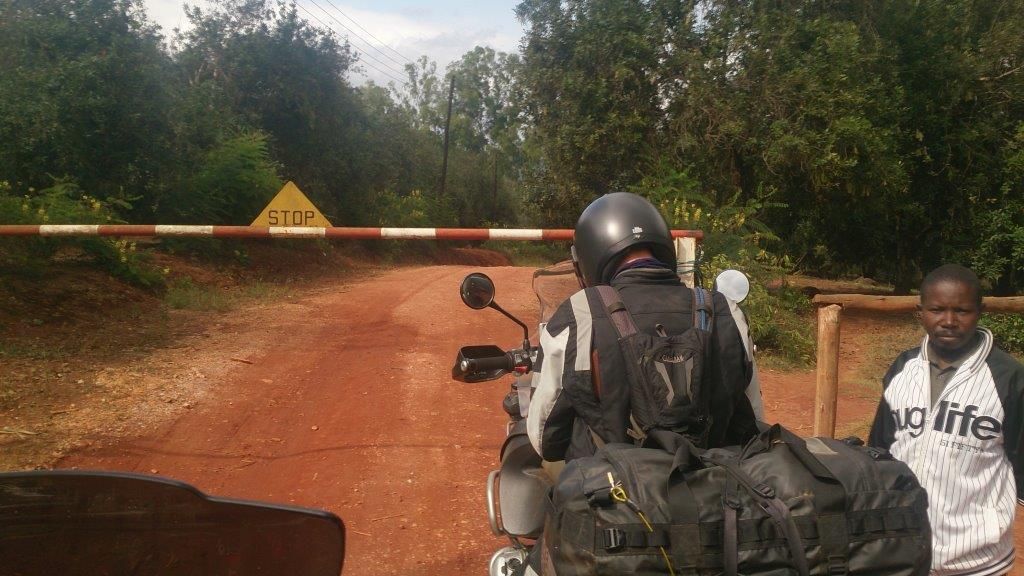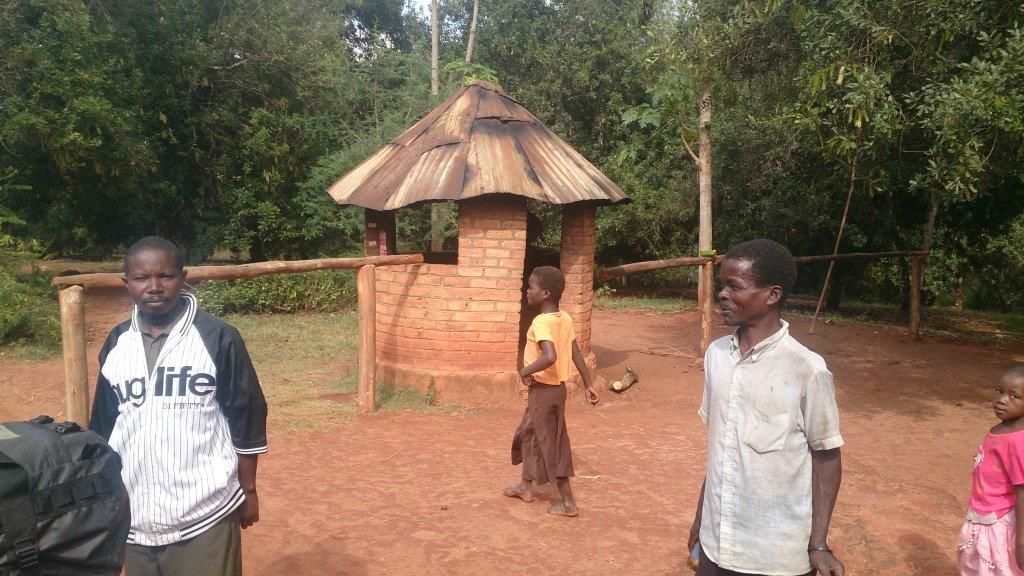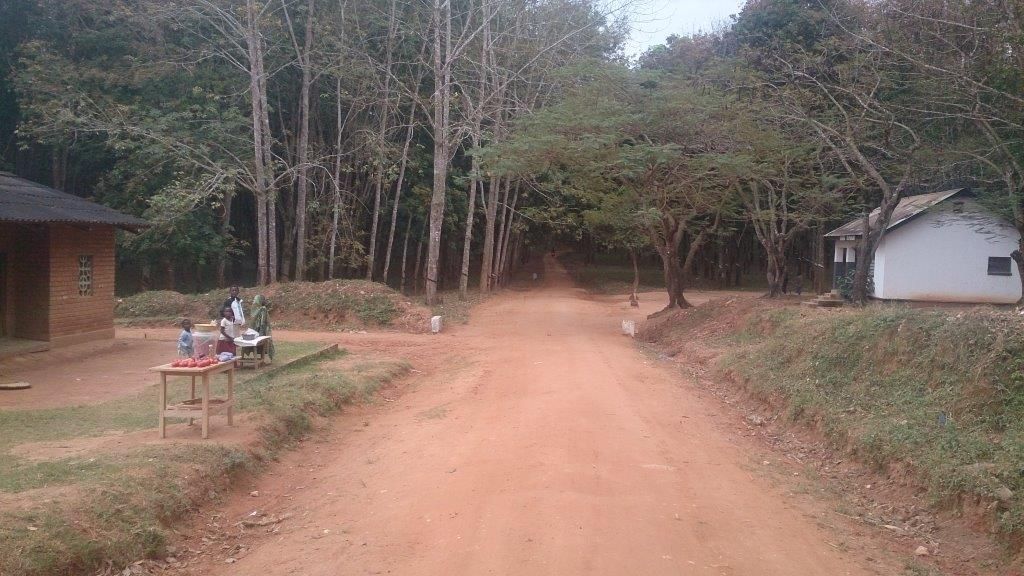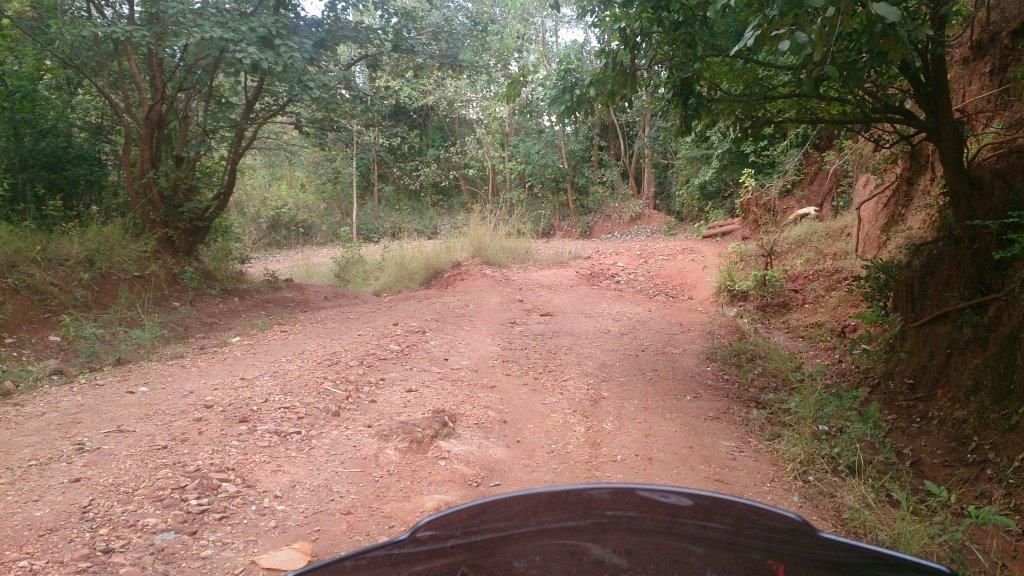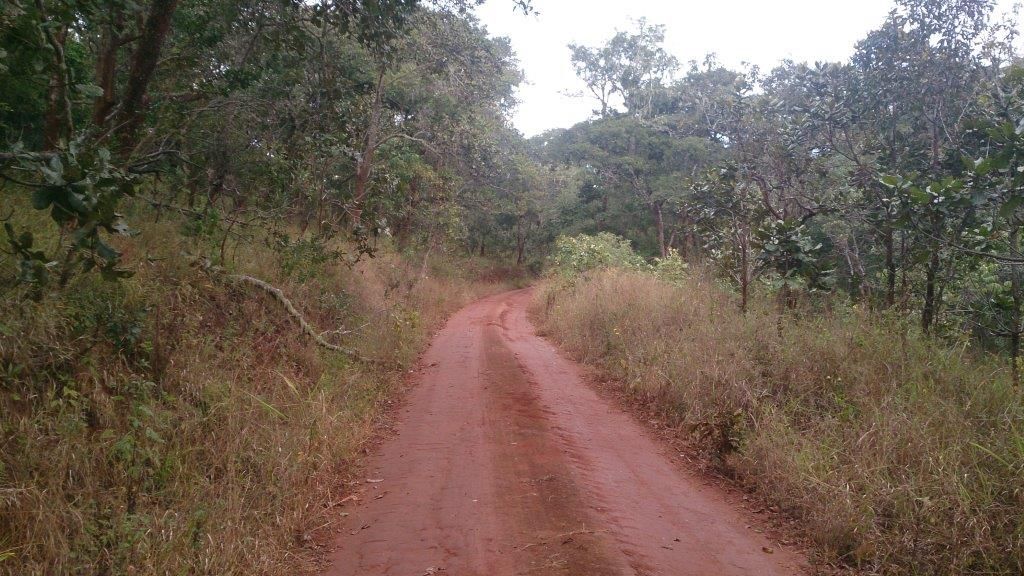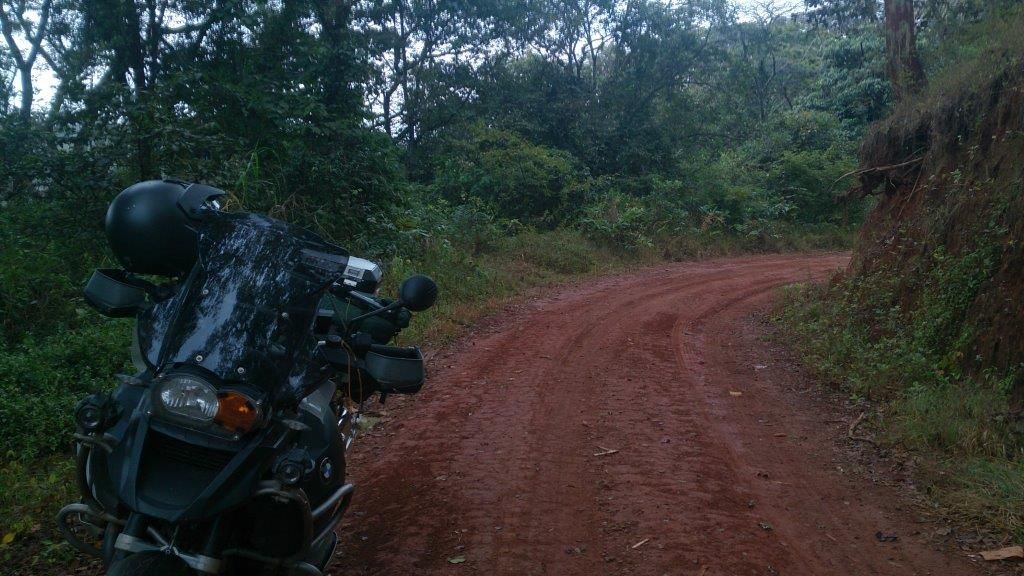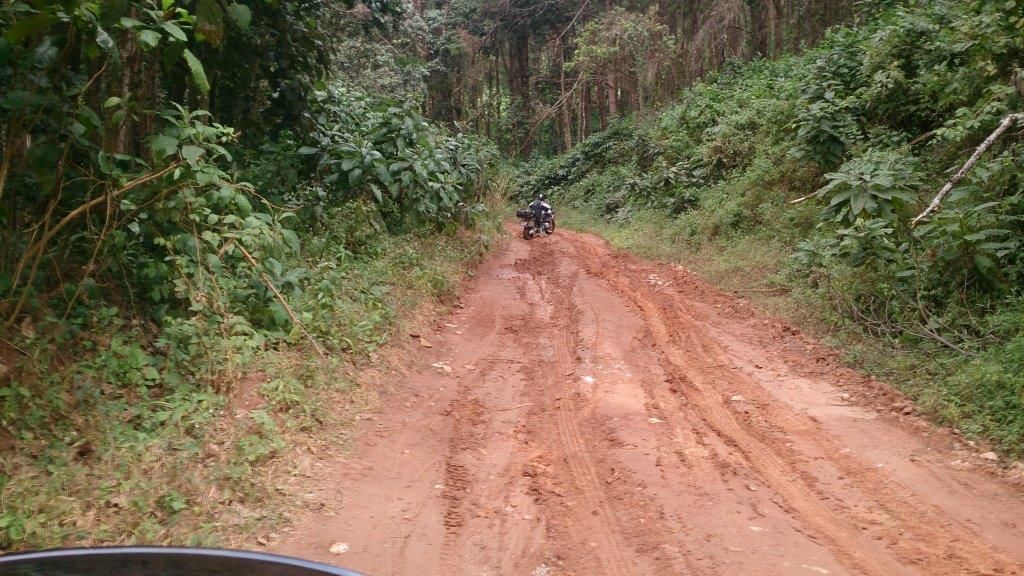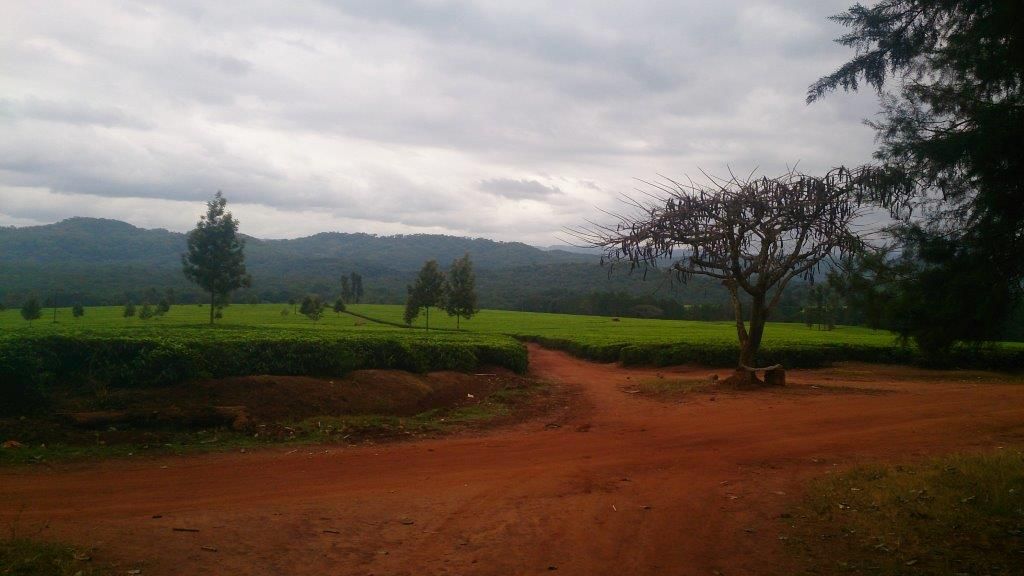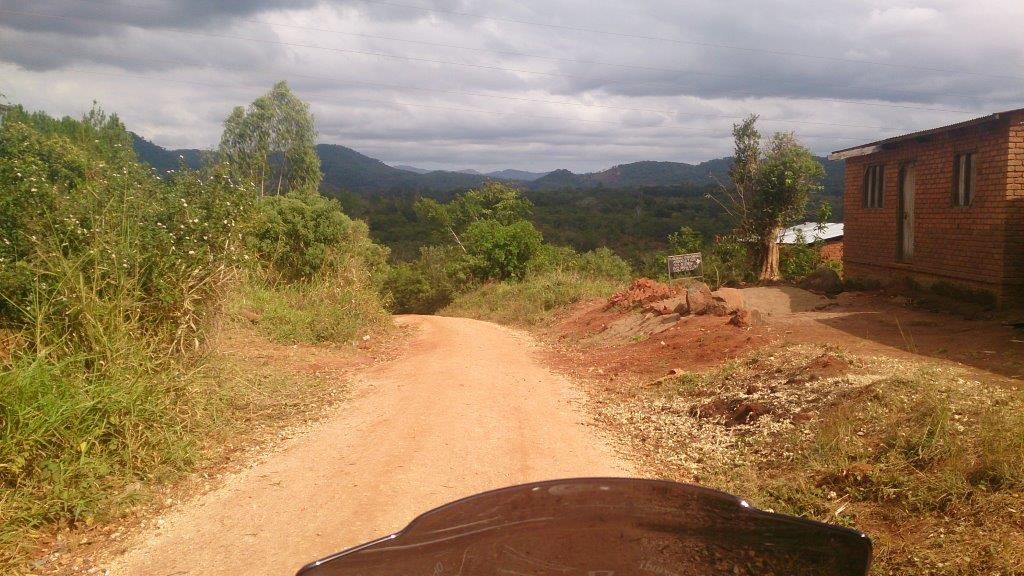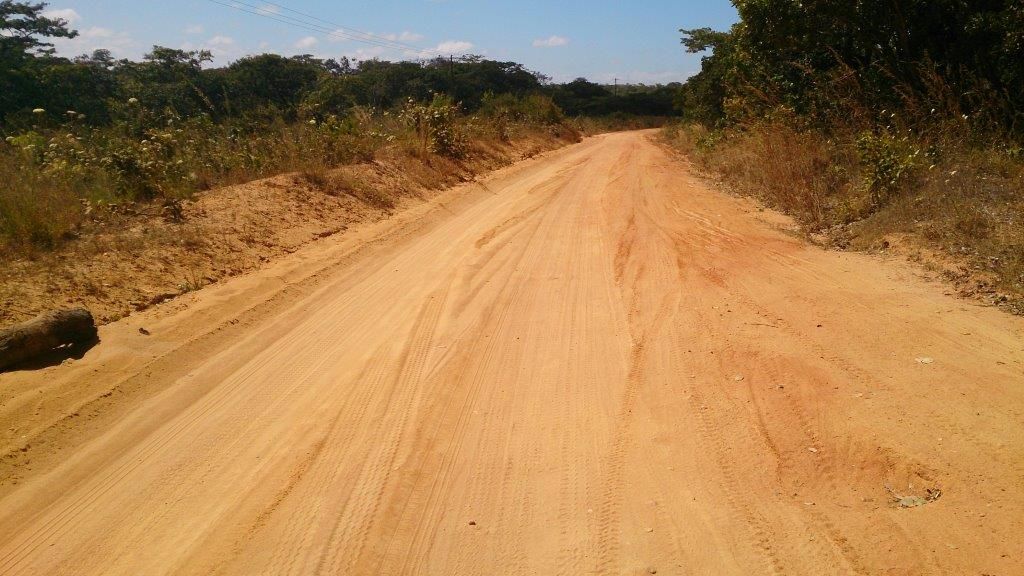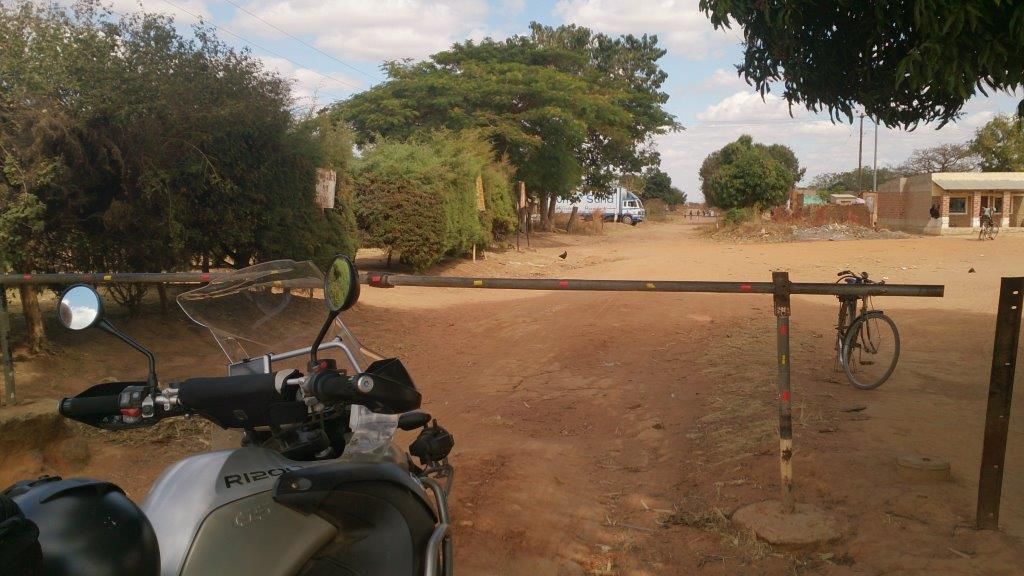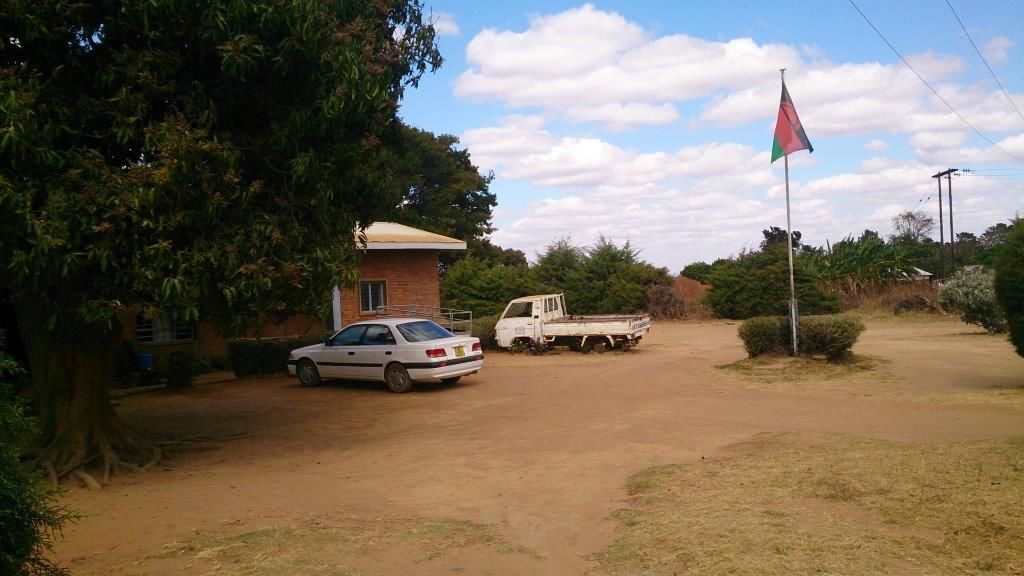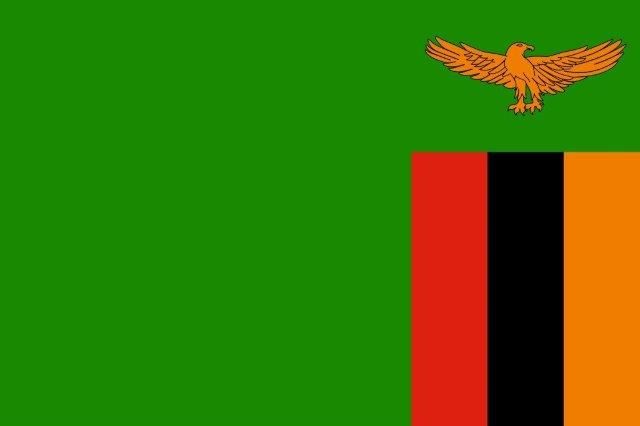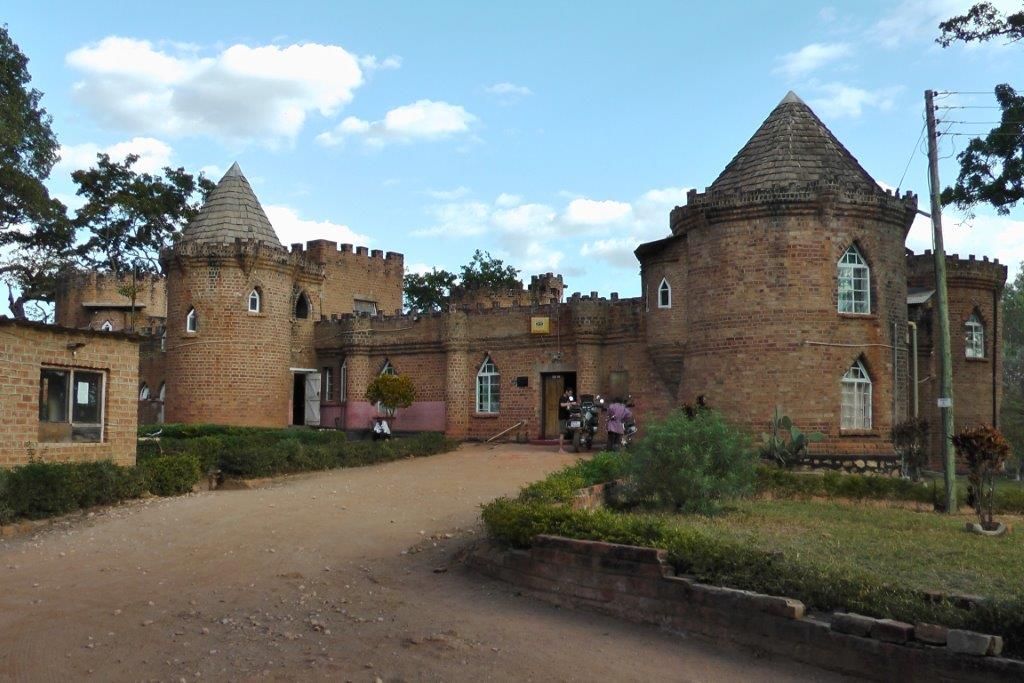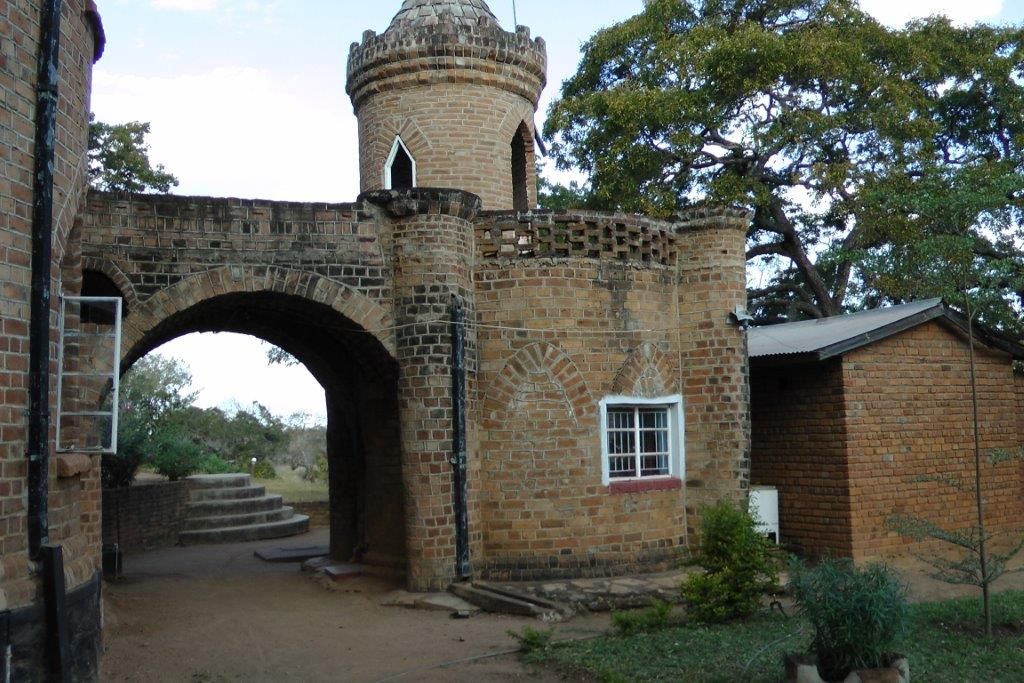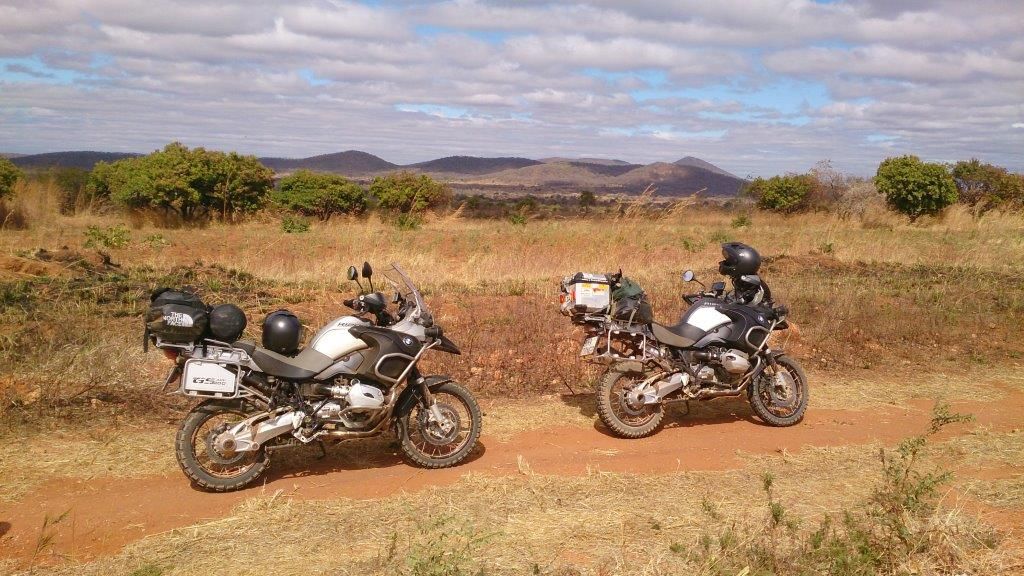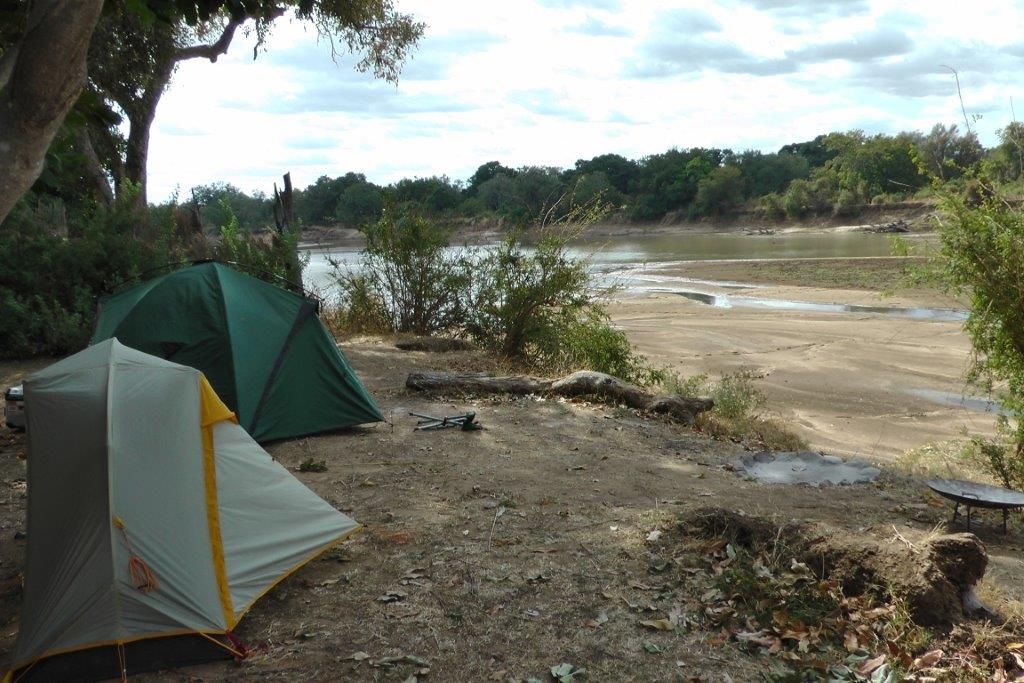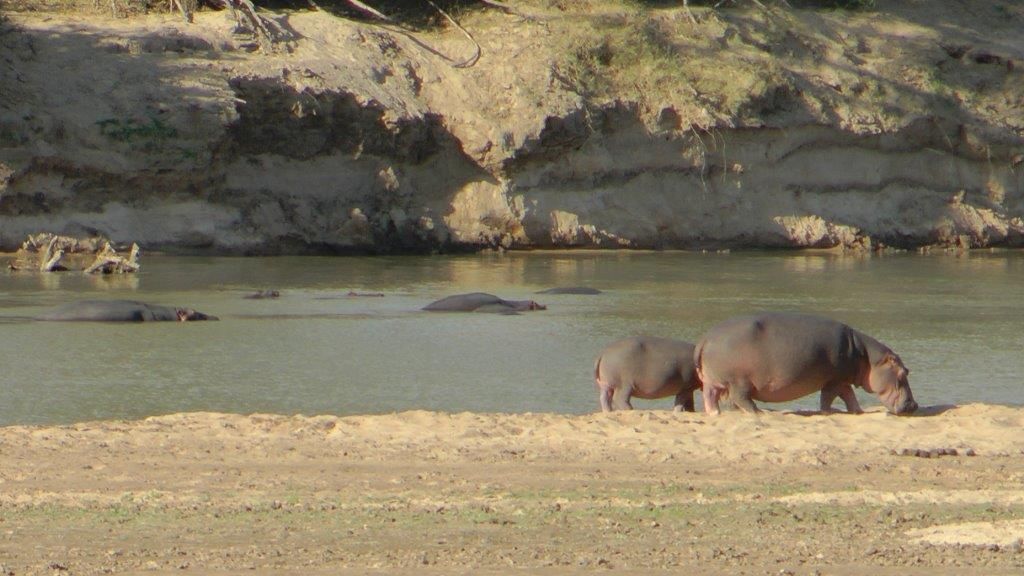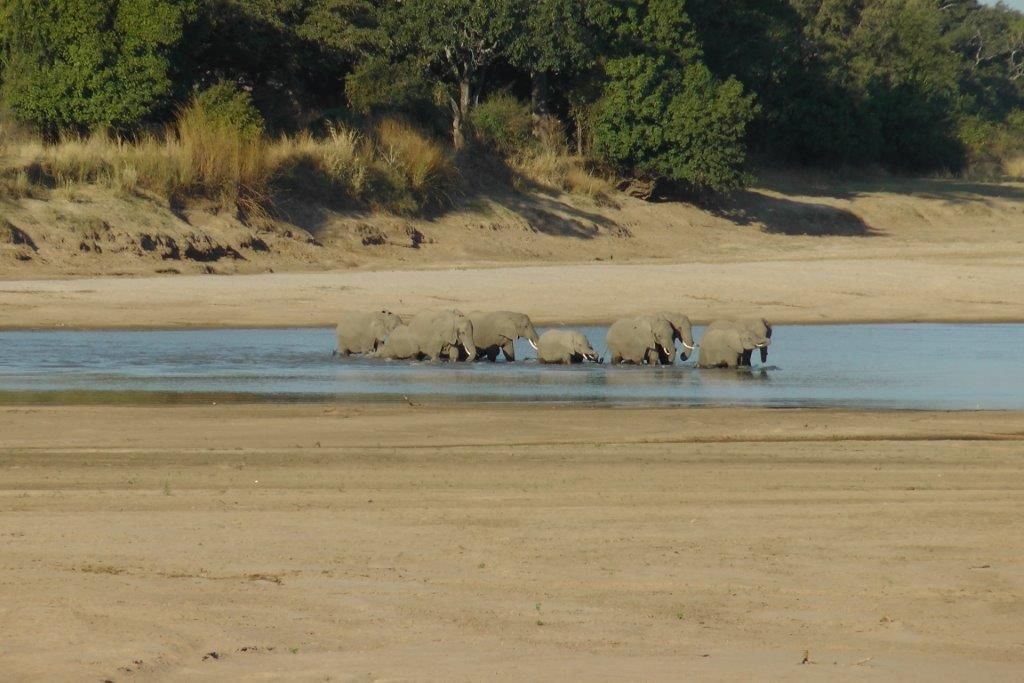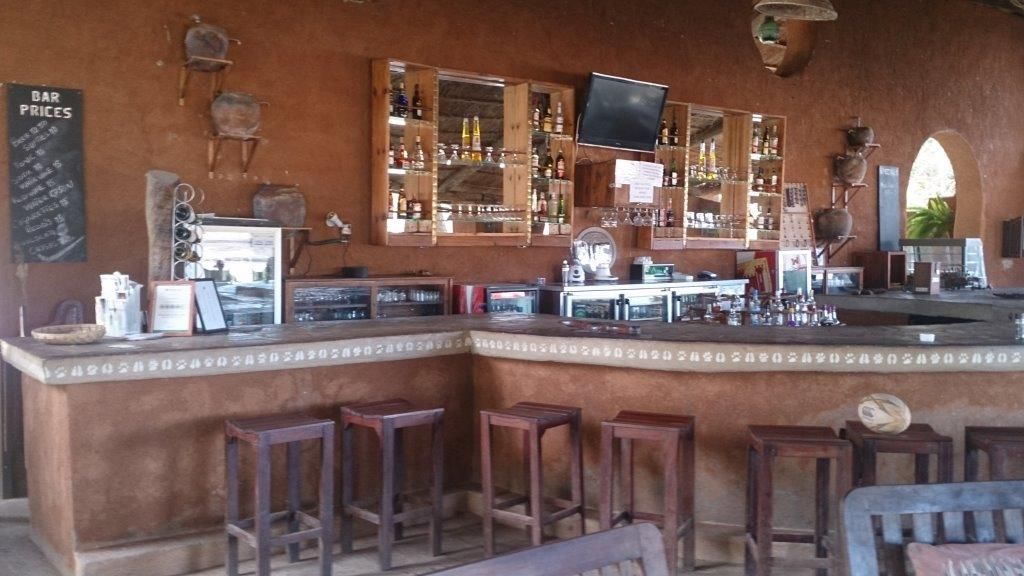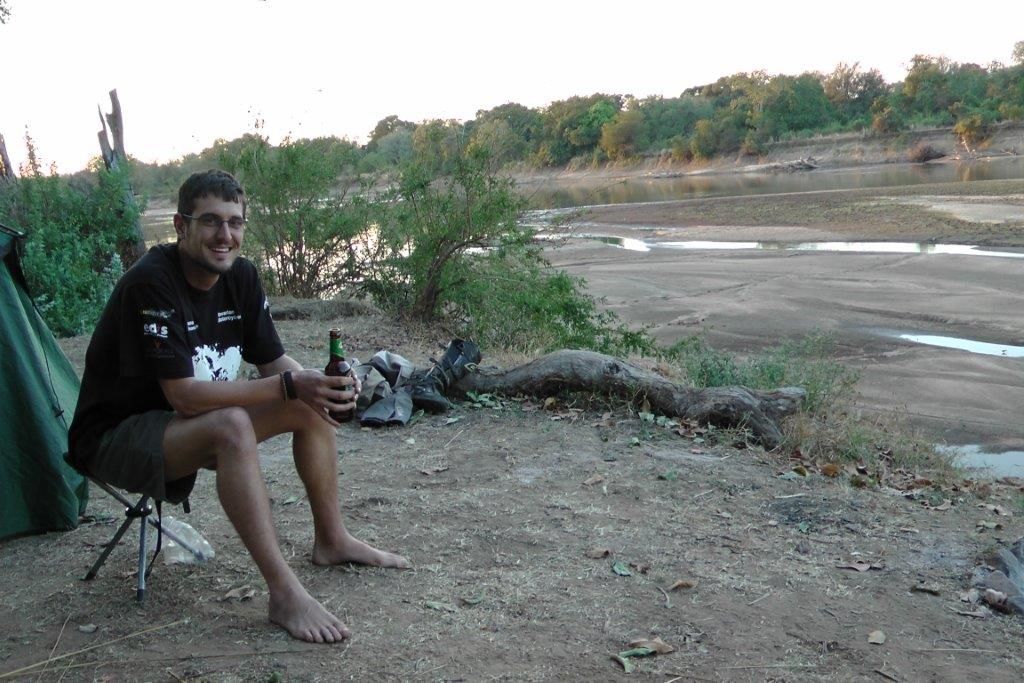Day 5
We had a short day’s ride ahead of us, so got up very calmly and had some coffee with a couple of Canadian girls on the game viewing deck as the sun was rising. A good breakfast later, we paid our bill, before departing at 10:00. We fuelled the bikes in Lilondwe and headed north towards Lake Malawi. From go, the temperature was 32 deg and it stayed like this until sunset.
One of very many Baobabs
It is astonishing how many people are walking next to the road at all times. In more “urban” areas, this sets the speed limit at 50km/h, which I found very frustrating. After a couple of kilos however I started to get used to these low speeds and found myself not wanting to go quicker, because I was too busy enjoying the view and watching all the people! The people are so friendly and everyone waves at everyone all the time. We were met with huge smiles everywhere and I was starting to feel like the queen or pope with my constant waving and one handed riding.
We didn’t see much commercial farming. Seems most is done as sustenance farming
The owner from last night’s camp site told us that even though speed limits are low on the open roads, they are only regulated in the “urban” areas and that you can actually drive at any speed outside of the towns. There is also a rule that you can only get fined for an infringement once in a 24 hour period. I suspect this is meant for things like broken headlights, but according to him, if you are smooth enough you might get away with only having to pay your first speeding ticket of the day. We however did not feel like we needed to put this theory to the test.
Town were filled with small shops, all remarkably neat and painted in bright colors. An interesting thing I noticed was that most buildings had signs out in front, giving their name and postal address. It seems that people in Malawi either get lots of mail, or have an intense desire to receive some!
Self-proclaimed “Toys ‘R us”. Malawians have exceptional skill in carving toys from wood
Nearing the ever so popular Monkey bay, we took a turn onto gravel to head slightly west to Cape Maclear. The road was quite corrugated, but we had mountains and many turns to keep us happy. Approaching the lake, we passed through a little village and through a sandy river bed.
Last stretch for the day
We only had to do 150km for the day and arrived at a very quiet and beautiful site at 13:00, with the entire afternoon to spare.
On the shores of Lake Malawi
I felt obligated to take a photo of my bike on the shores of Lake Malawi and this cost me my first dismount of the trip. As my front wheel got the slightest taste of the sandy shore it just folded under me and my bike was lying on its side with the rear wheel still on the grass! Not my proudest moment, but it’s all part of the fun. Dawie came to my rescue, but as we were picking up, the sand under his centre stand gave way allowing his bike to sympathise with mine!
Camp site
We set up camp quickly and grabbed some beers for an intense session of R&R. Carlsberg has a monopoly on the beer market in Malawi, it seems and we found no other local beers here.
R&R at the bar
Our friendly and very quick barman
Enjoying the African sun in July
A man calling himself “Captain Dan” approached us, trying to sell us a booze cruise on his ship for a lot of US dollars. We found out just how negotiable fees are here when his price went down by 80%, before he finally gave up. We rented a kayak and some snorkel masks from Captain Dan and asked him to bring us some beers from the village with the kayak at half the price of the beers at the bar.
We spent some time on the lake and saw a large island with what looks like a beautiful track up a mountain. We decided that perhaps transporting our bikes there on our kayak would not work, so now we have reason to return there…
Our kayak, filled with Carlsberg beers
Local fishermen returning in the sunset
On landing, we met a couple of new arrivals to the camp. An old couple from South Africa had just pimped the 4x4 dream into their new van and were very excited to show us every new chromed nut and raised wheel arch. A couple of deep sea diamond drillers from Cape Town joined us for drinks and we all had great night’s Afrikaans kuier.
Lying in my bed, I felt very humid and warm. I could hear mosquitos around my tent and was very happy for the small can of Doom I’ve learnt to always take with me on camping trips. I fell asleep feeling very blessed and relaxed, under a warm, deceivingly quiet, African sky.
Costs for the day:
Camping: R110
Beer: R200 (R15-R20 each)
Dinner: R160
Fuel: R504 (23l)
Distance travelled so far: 2296m
